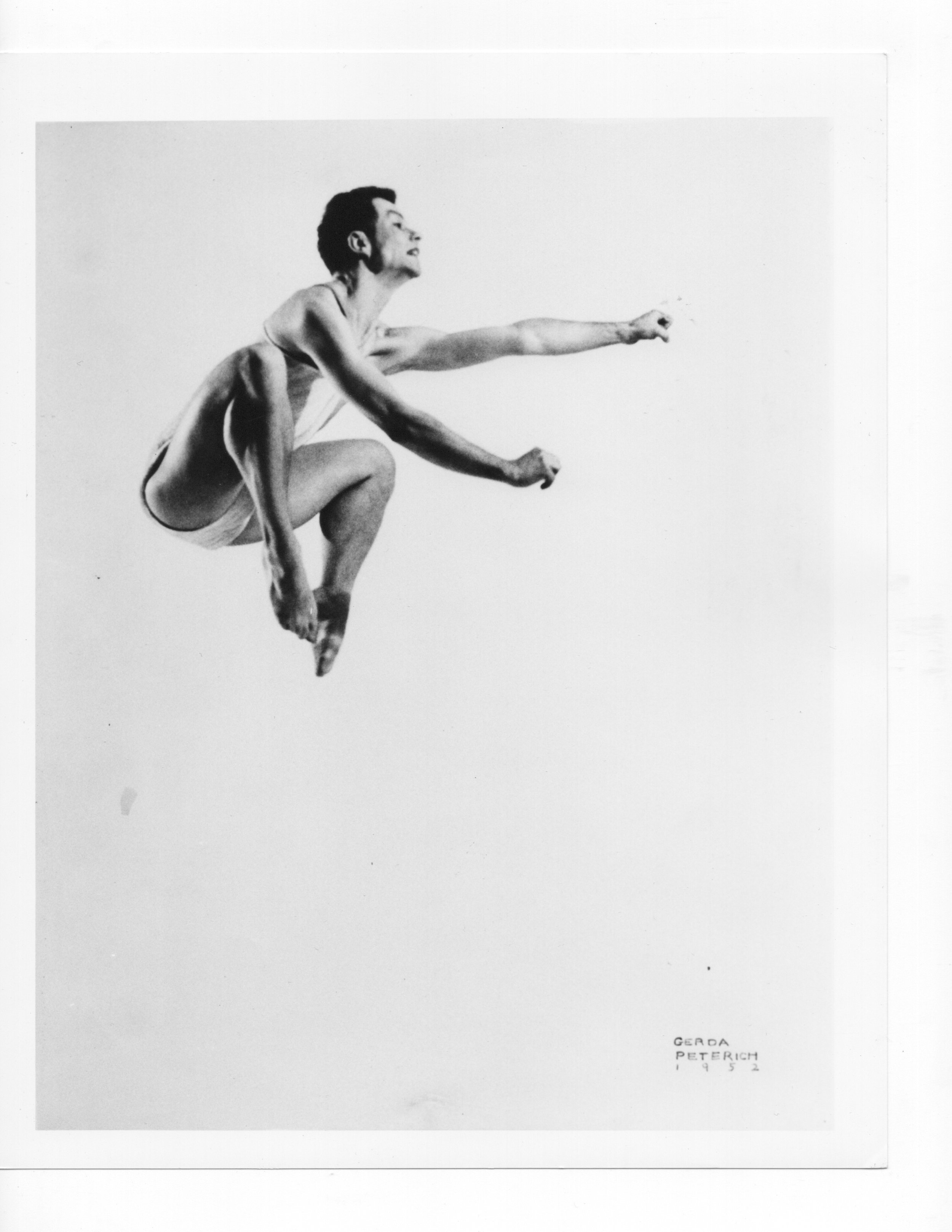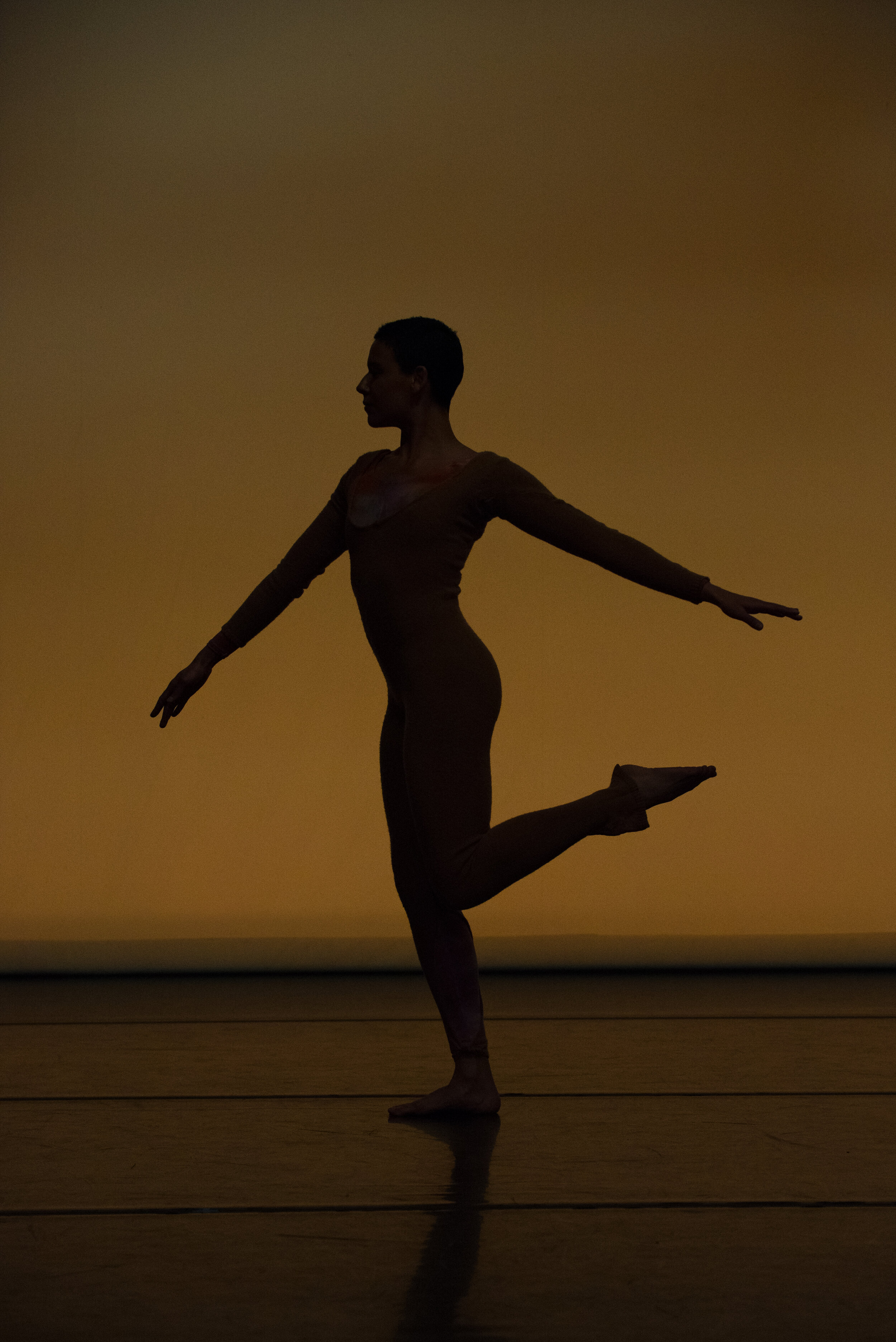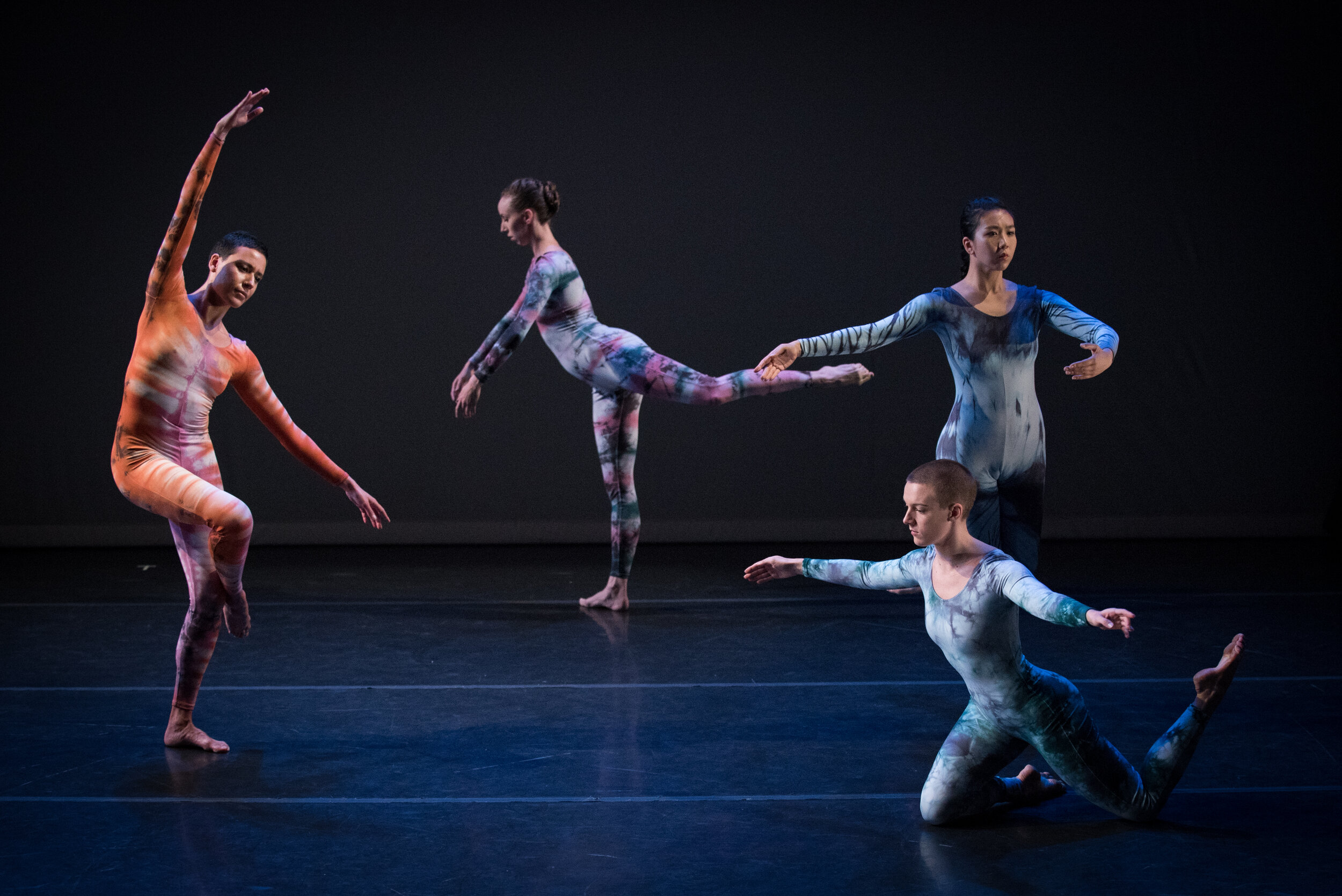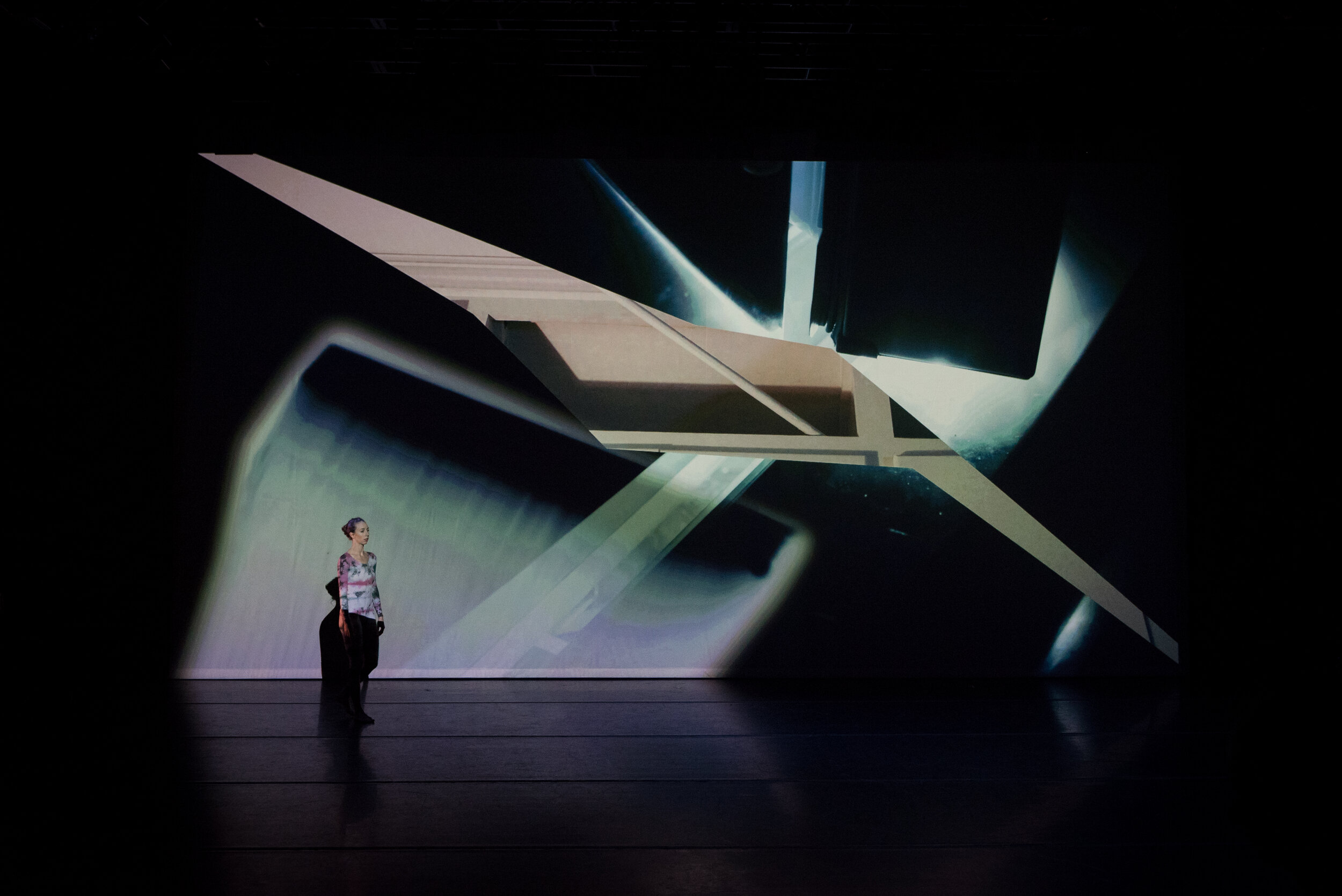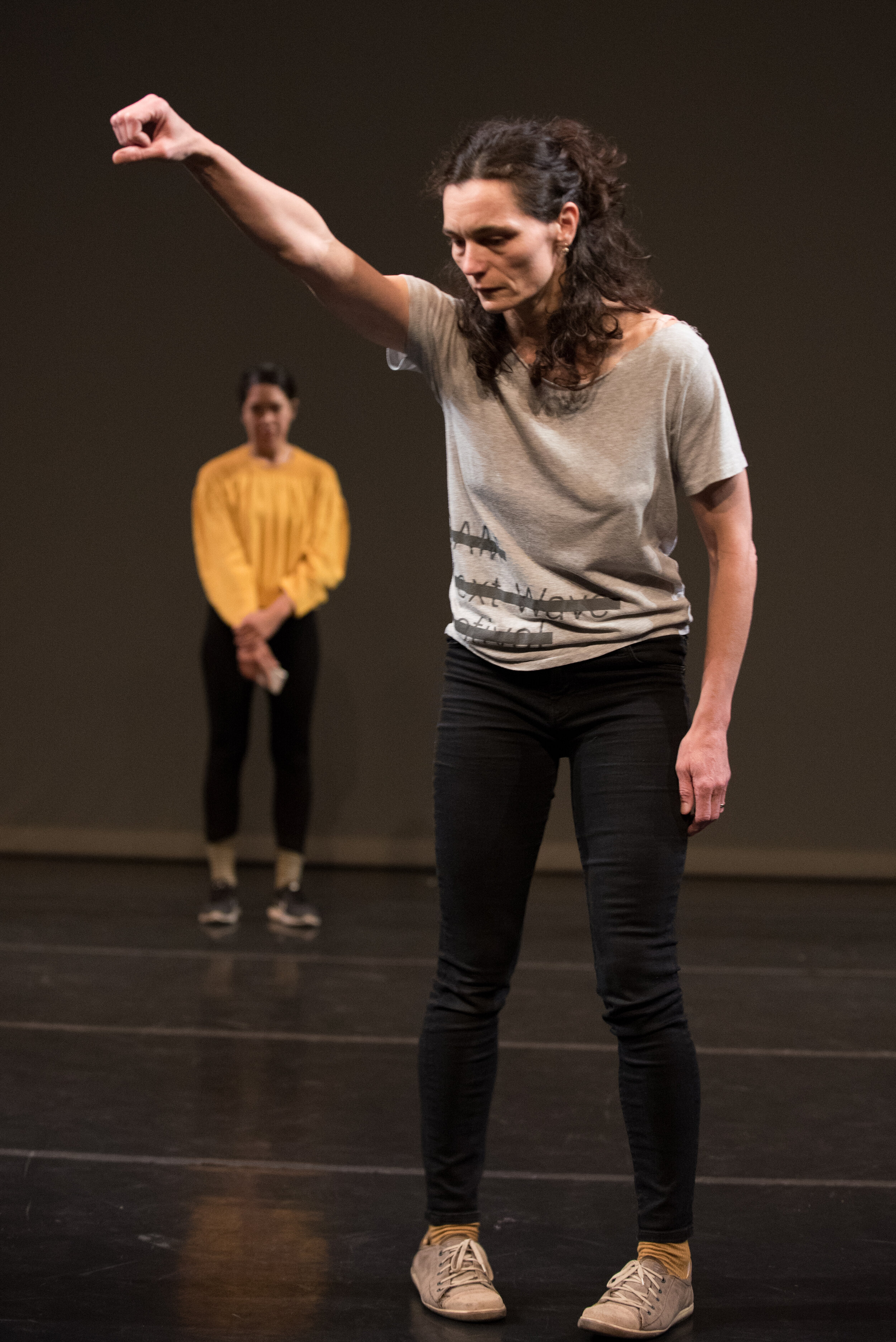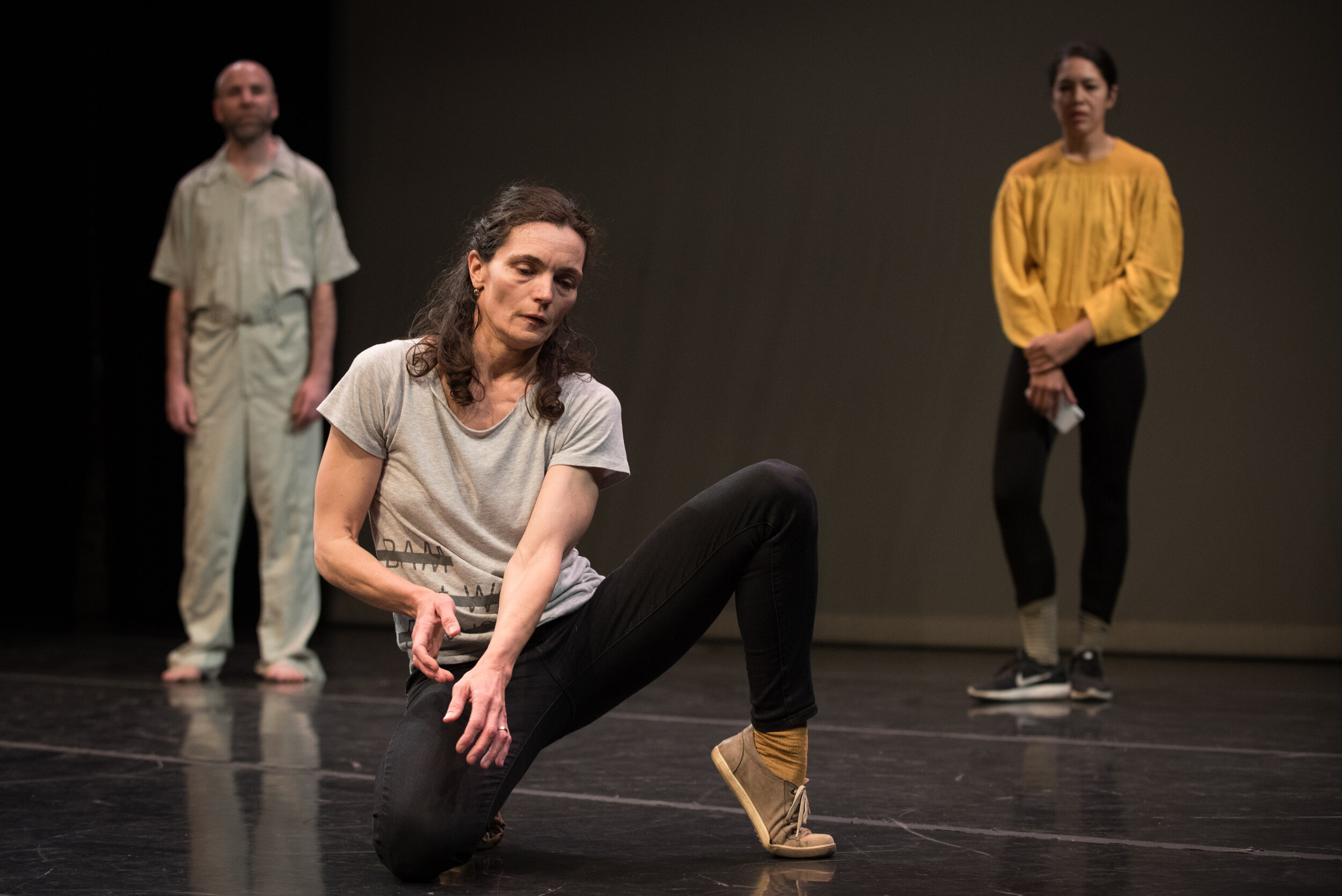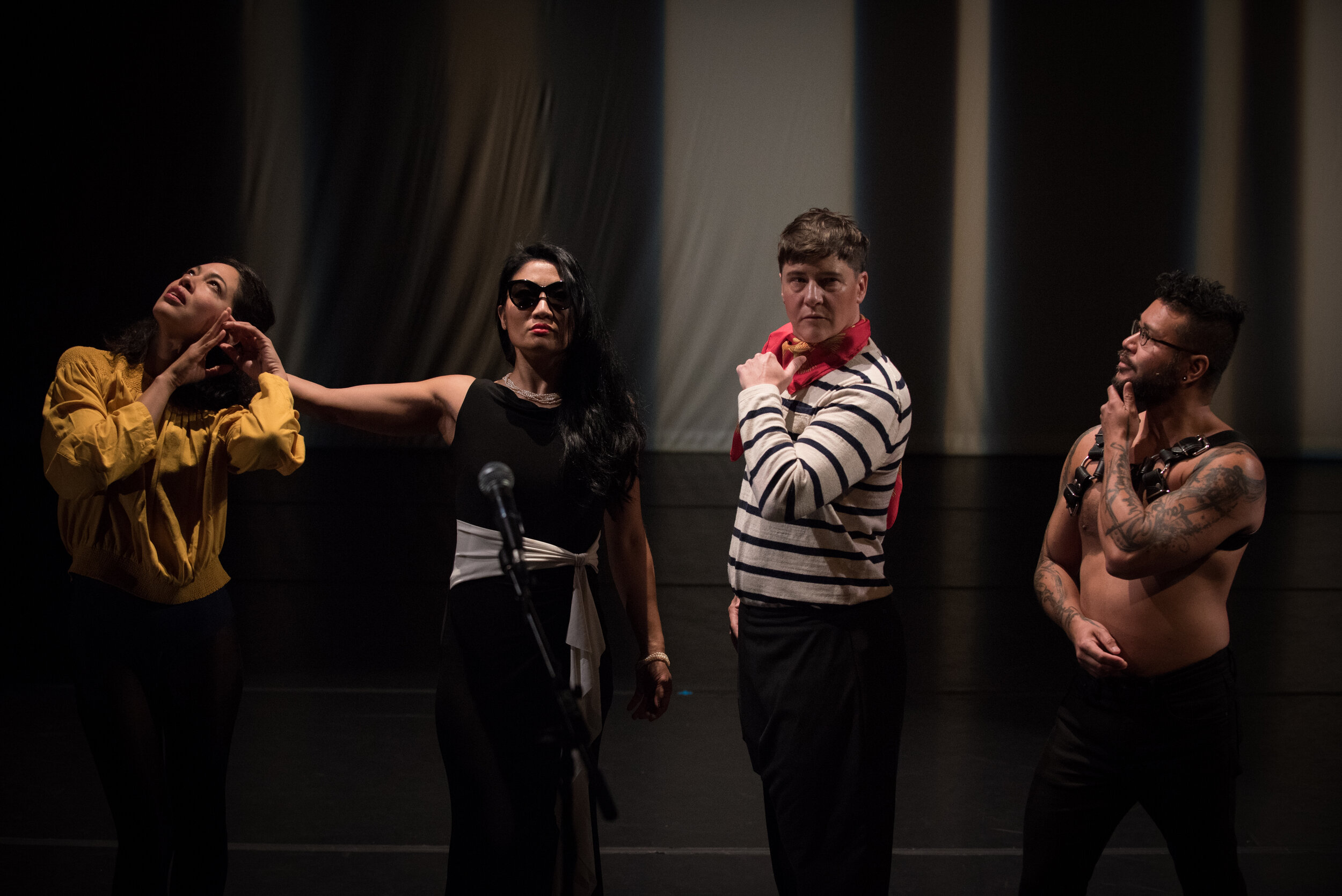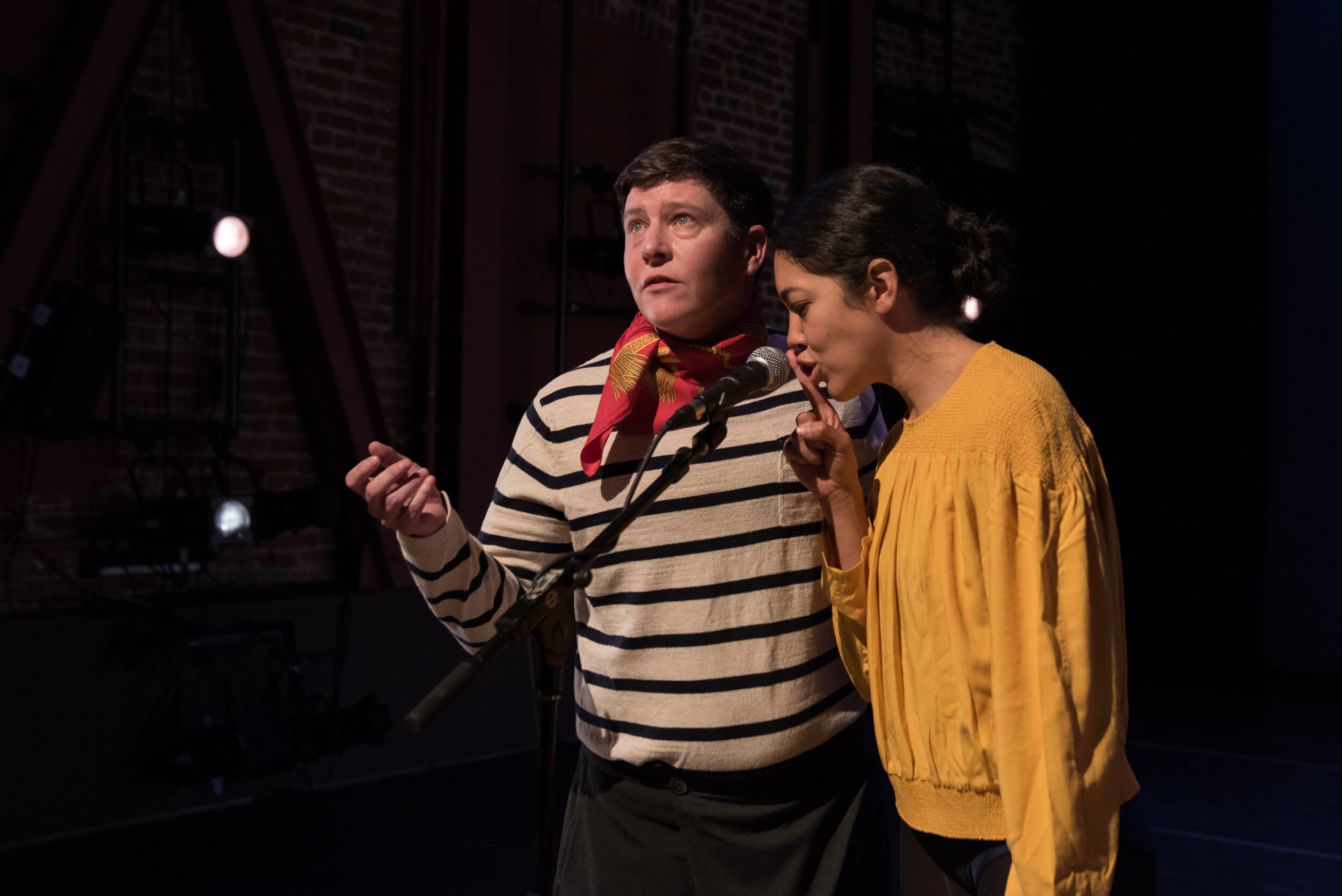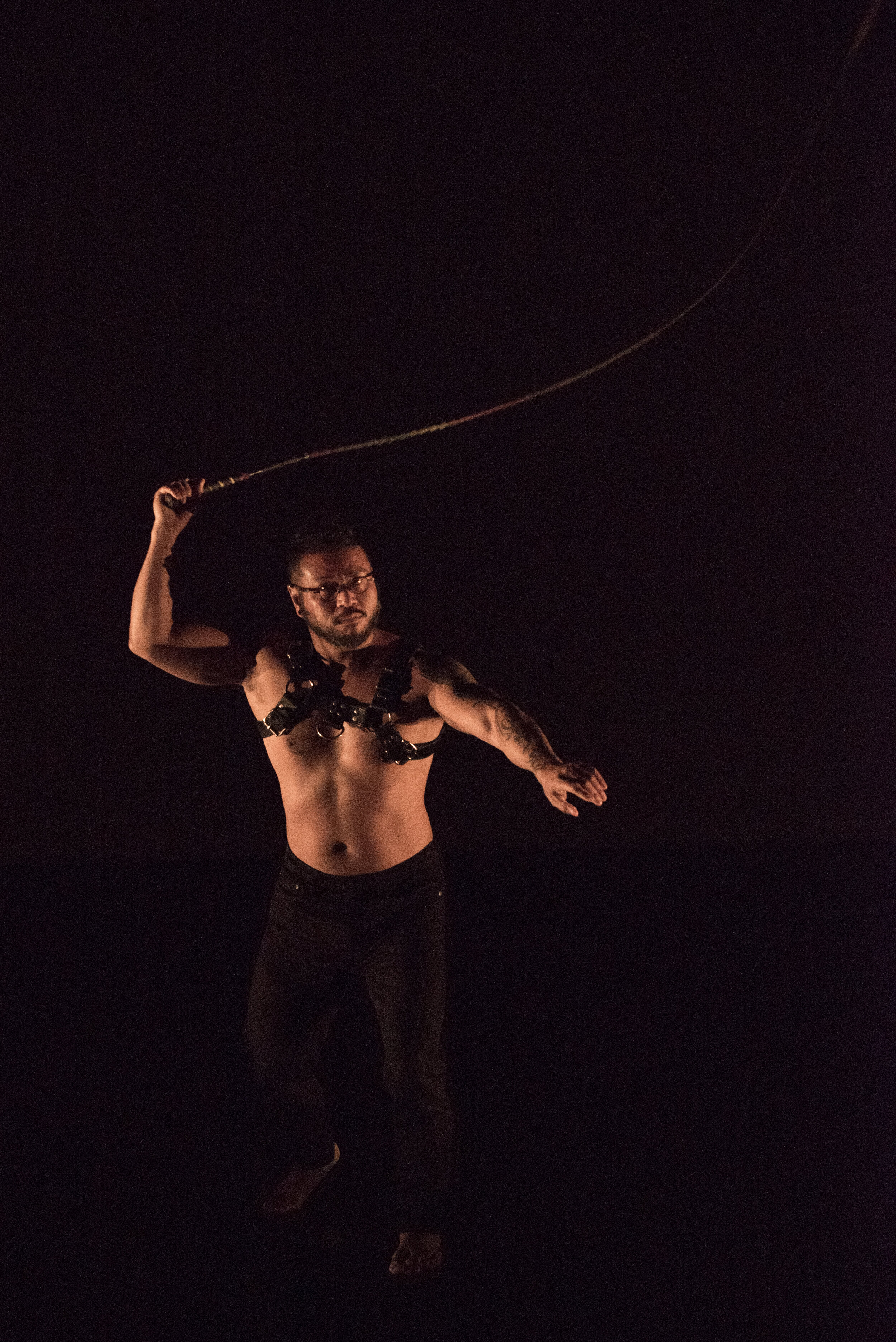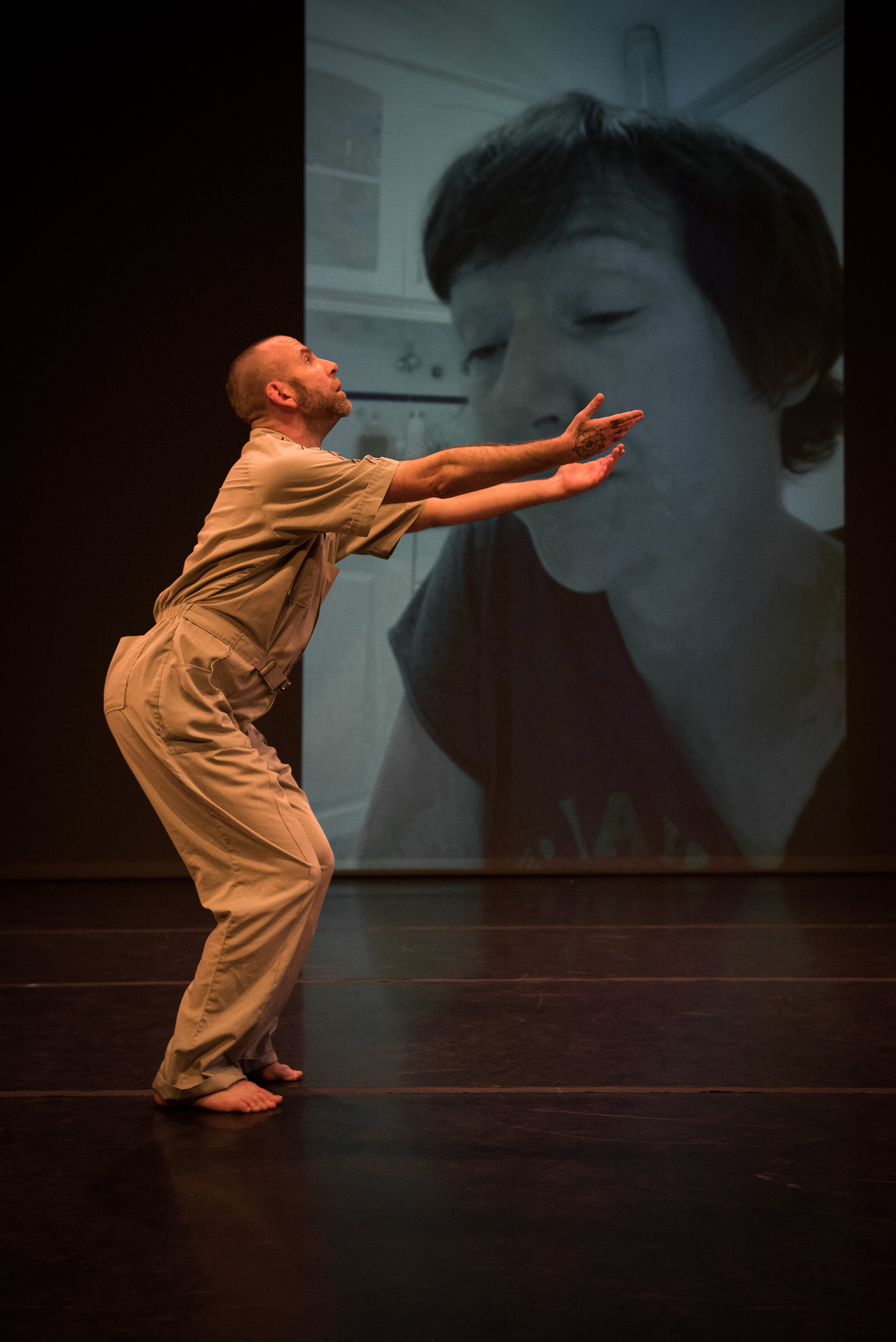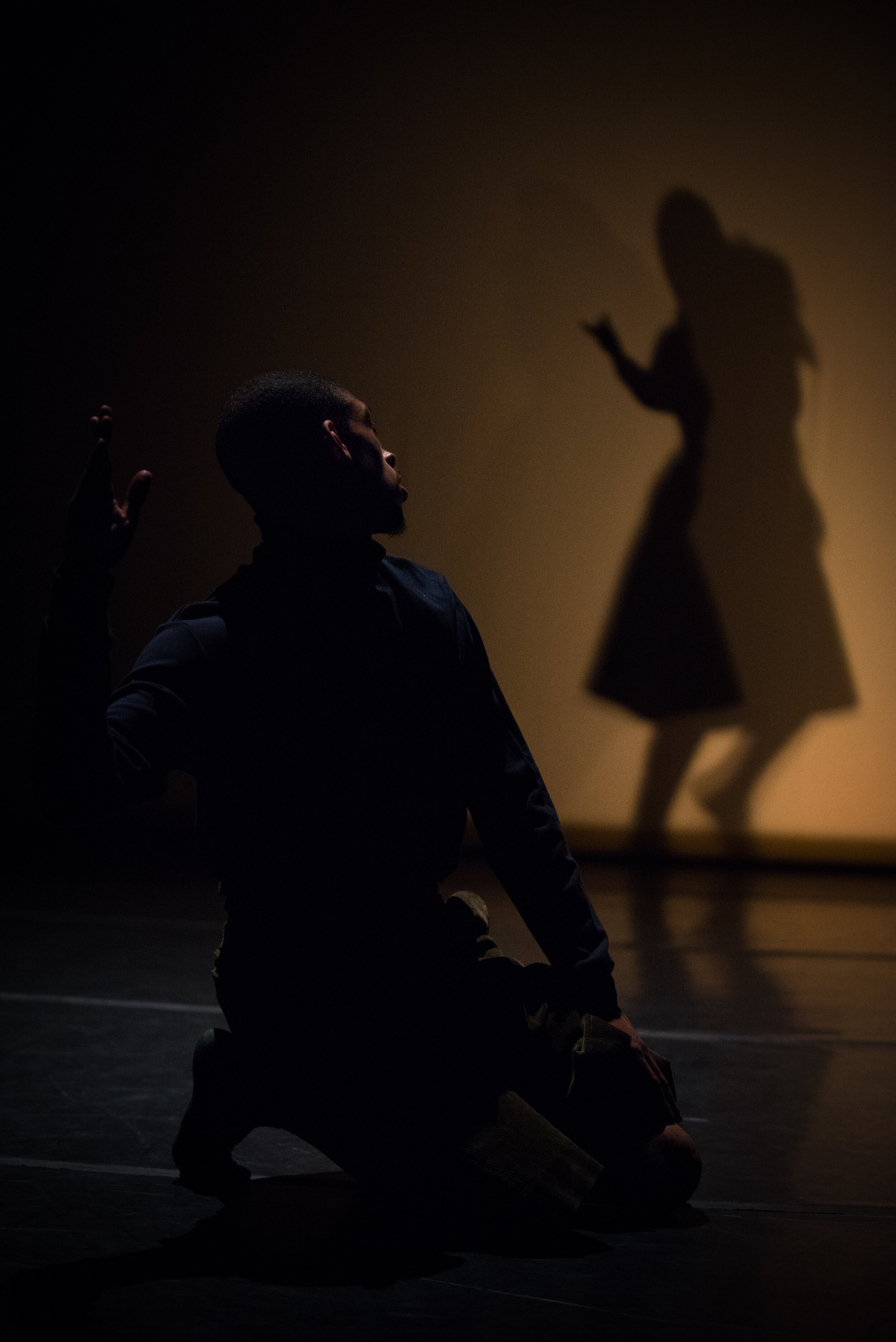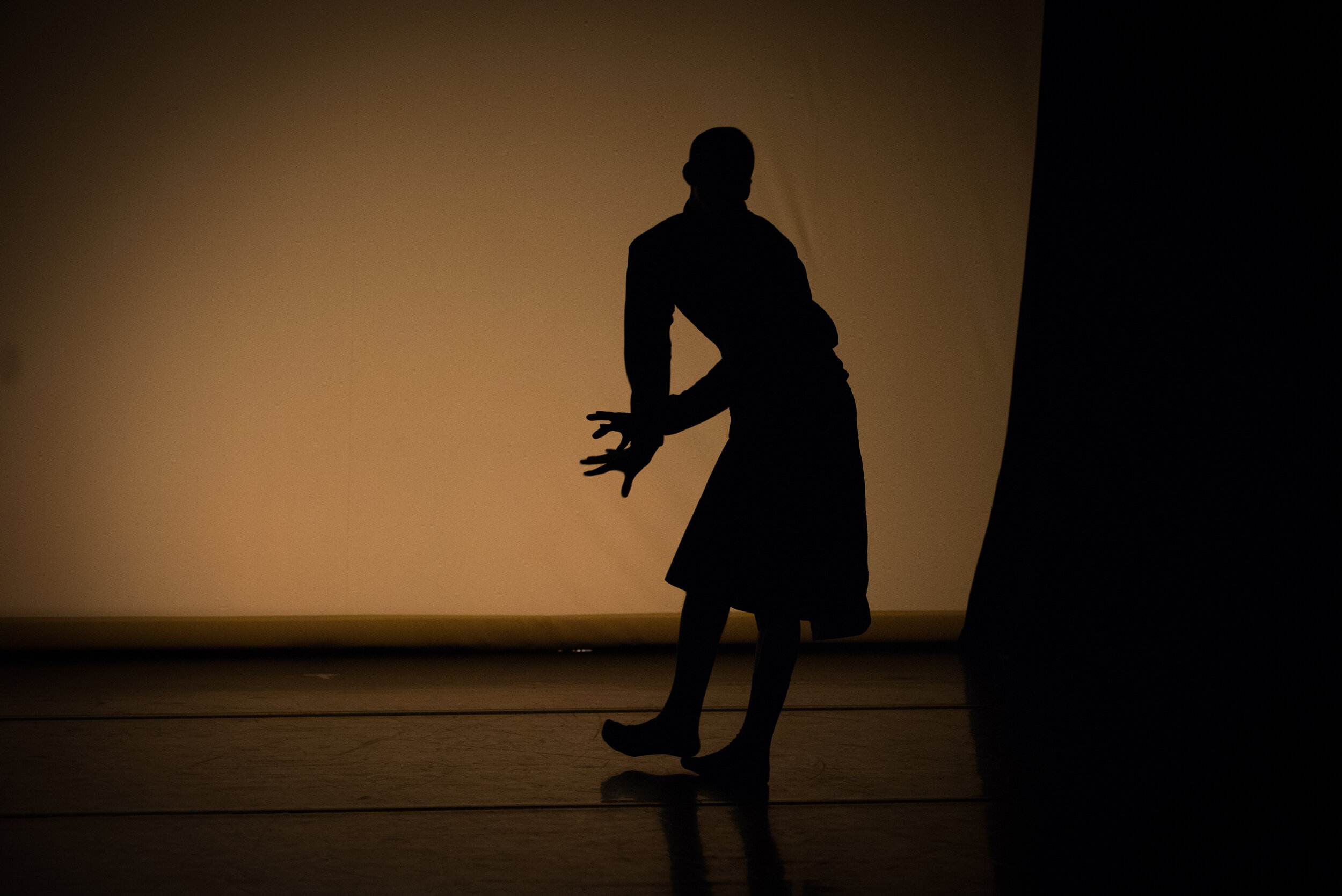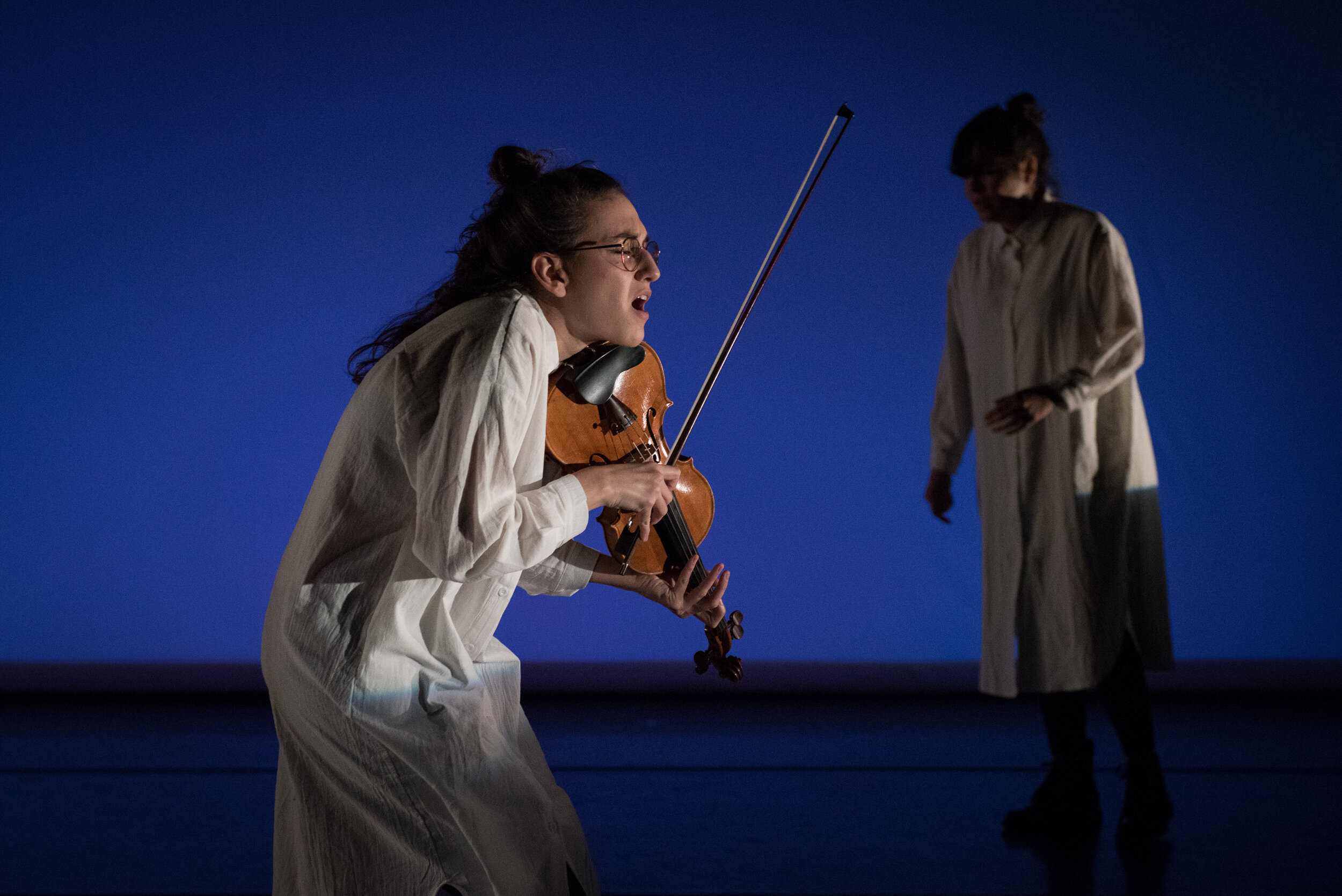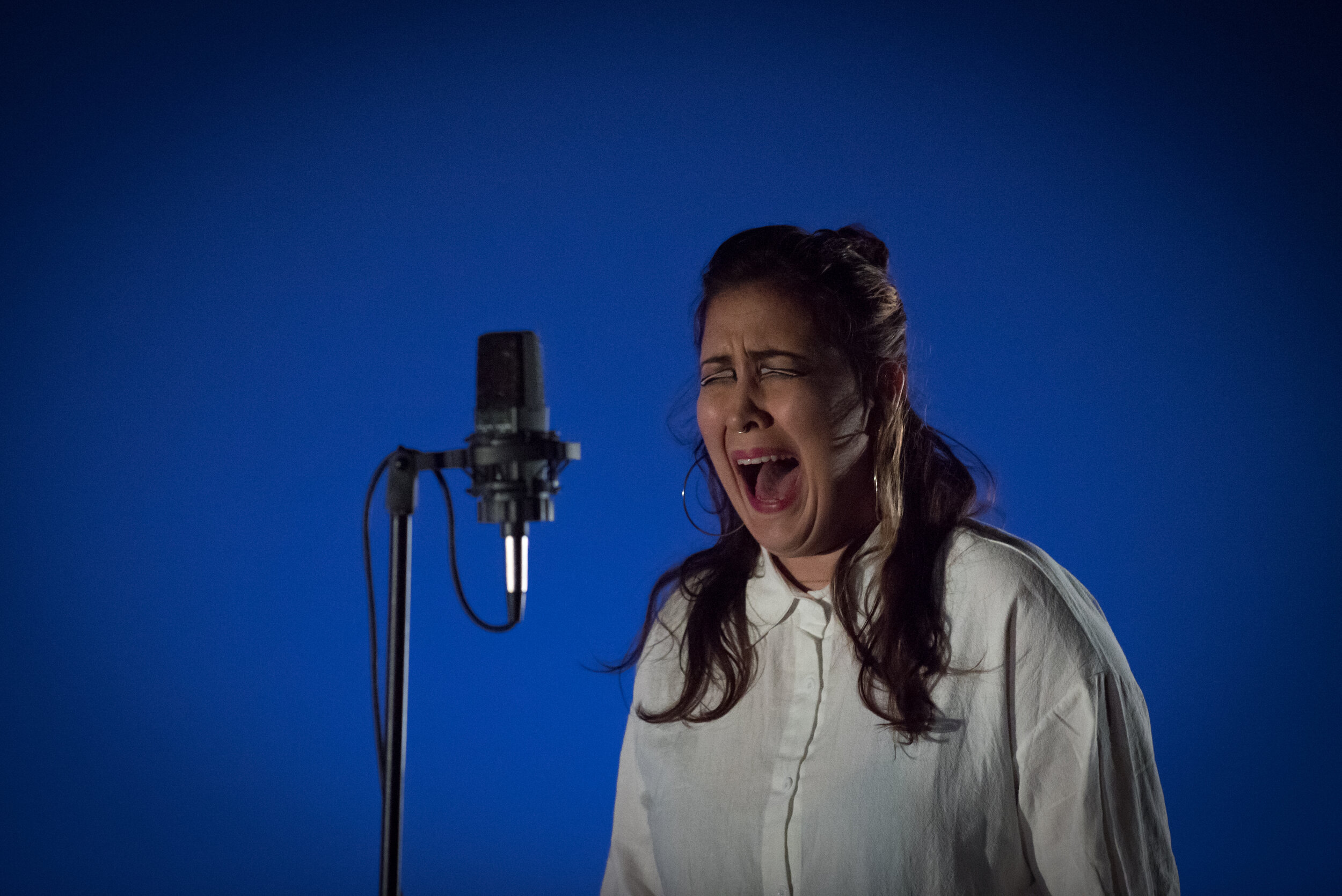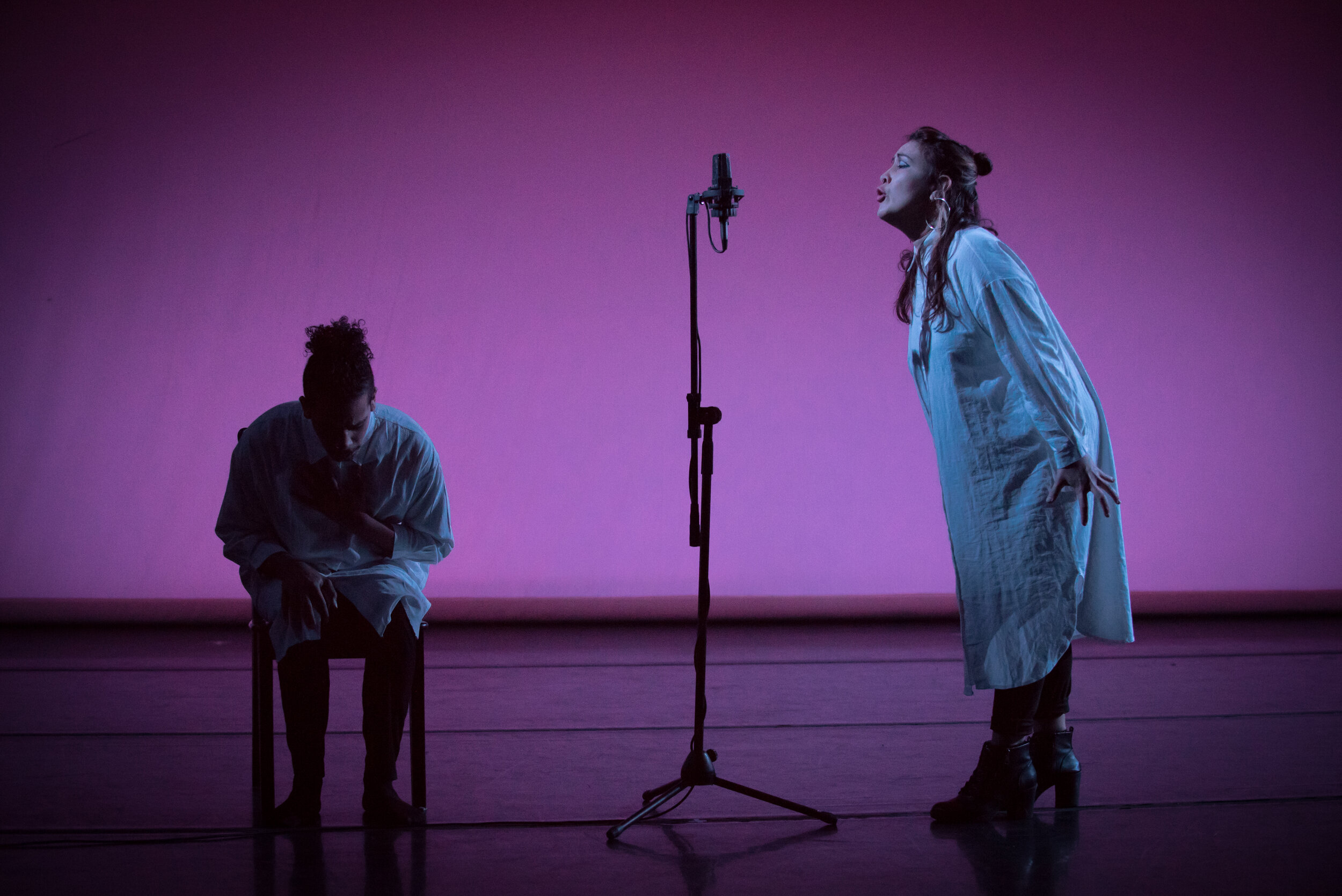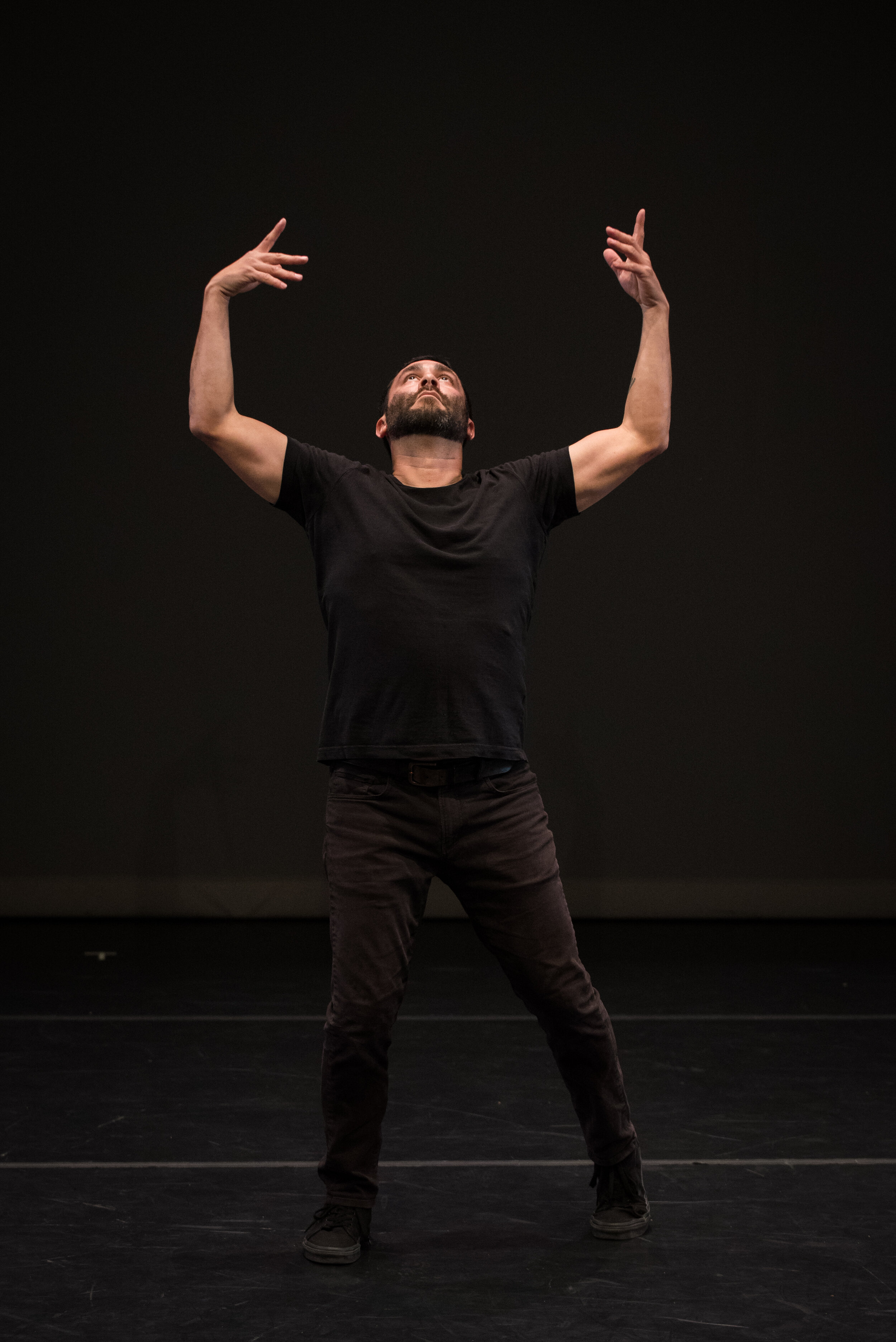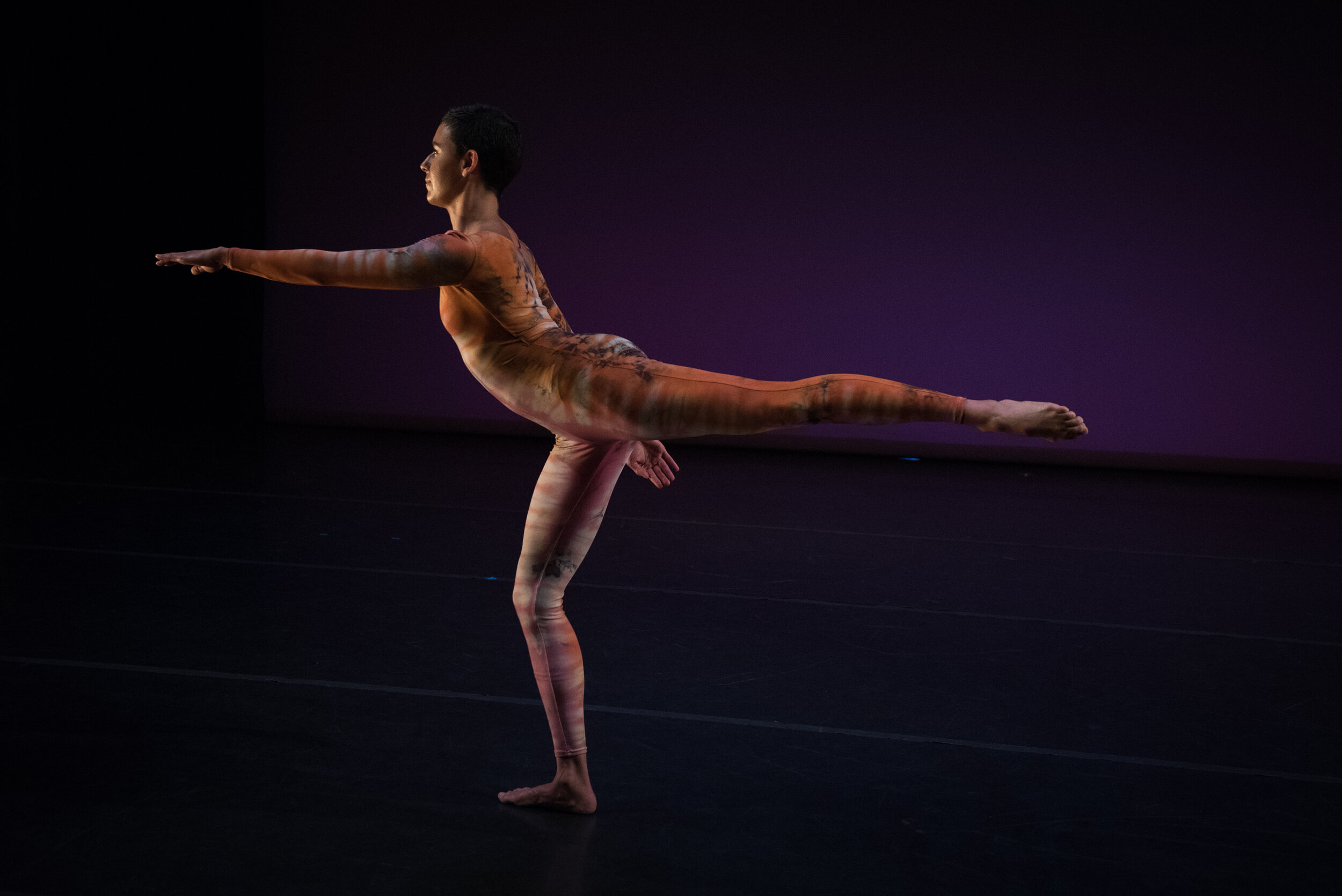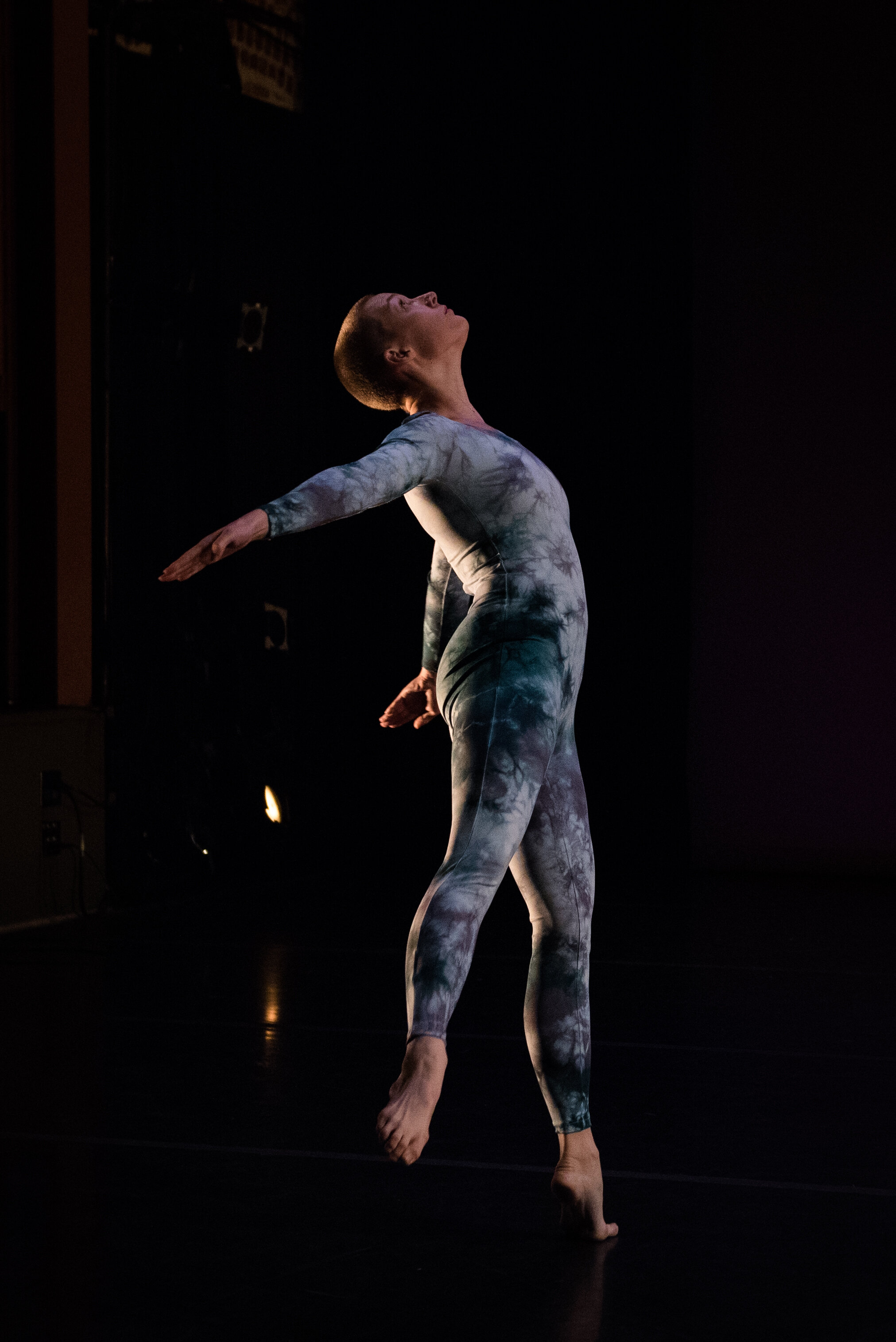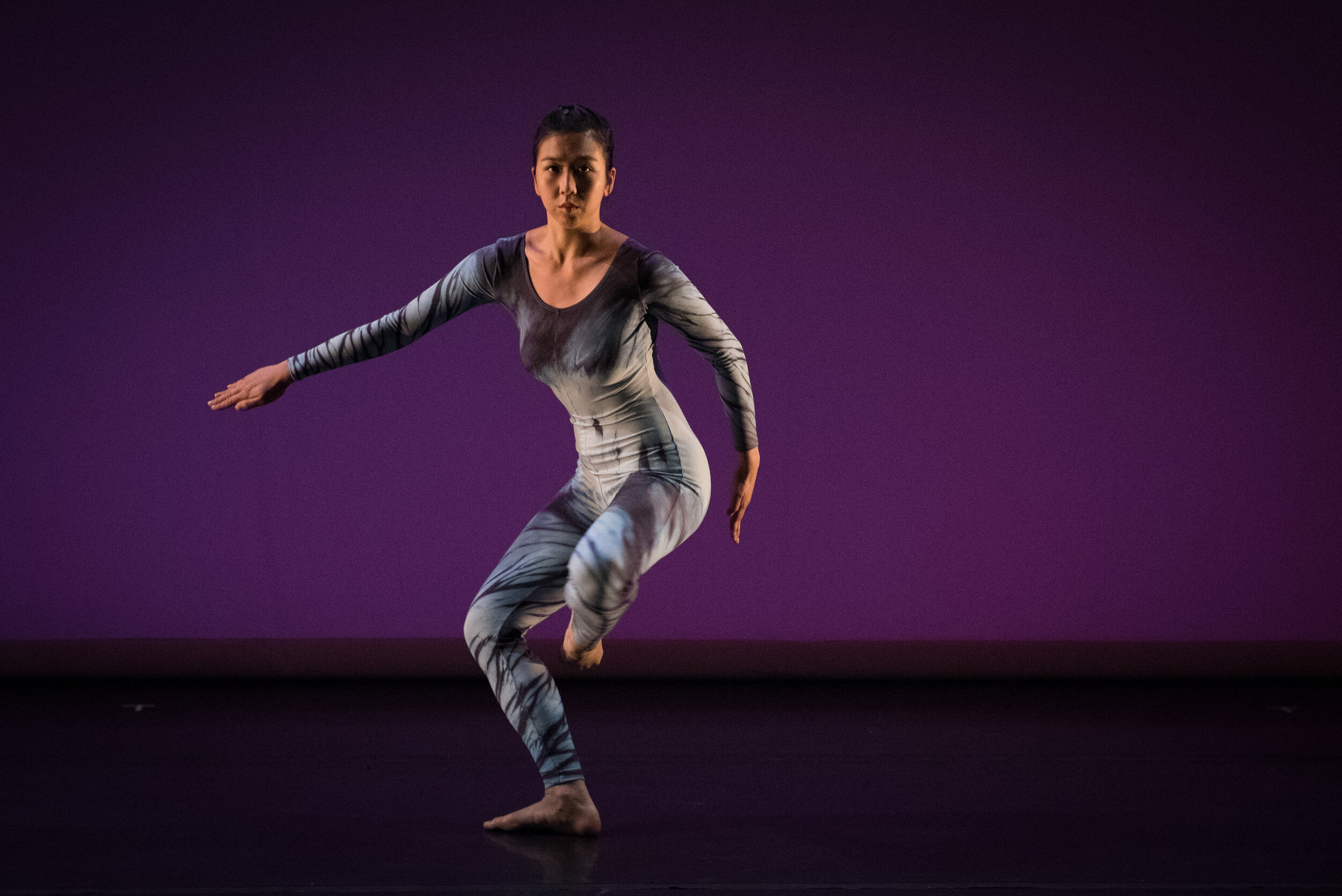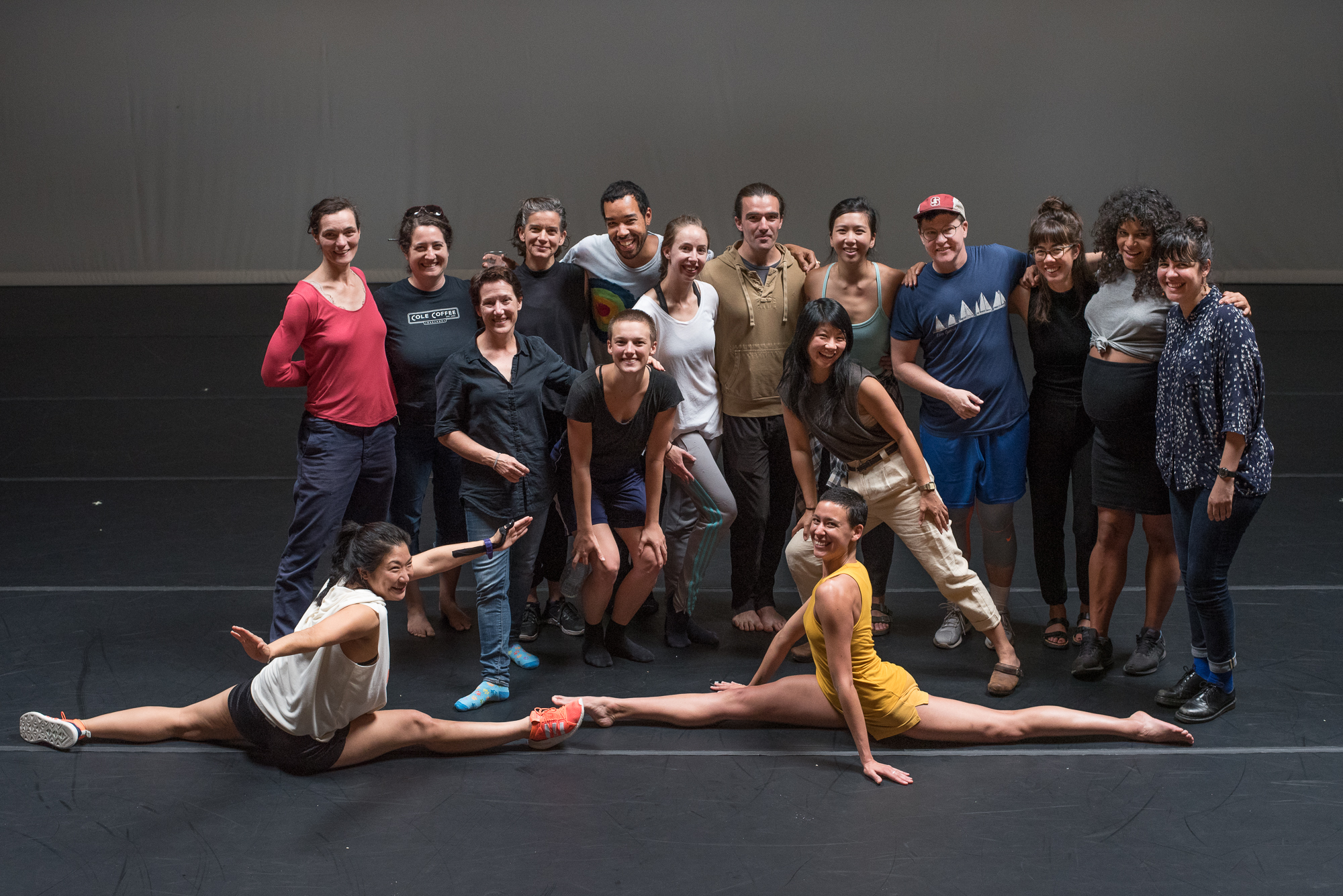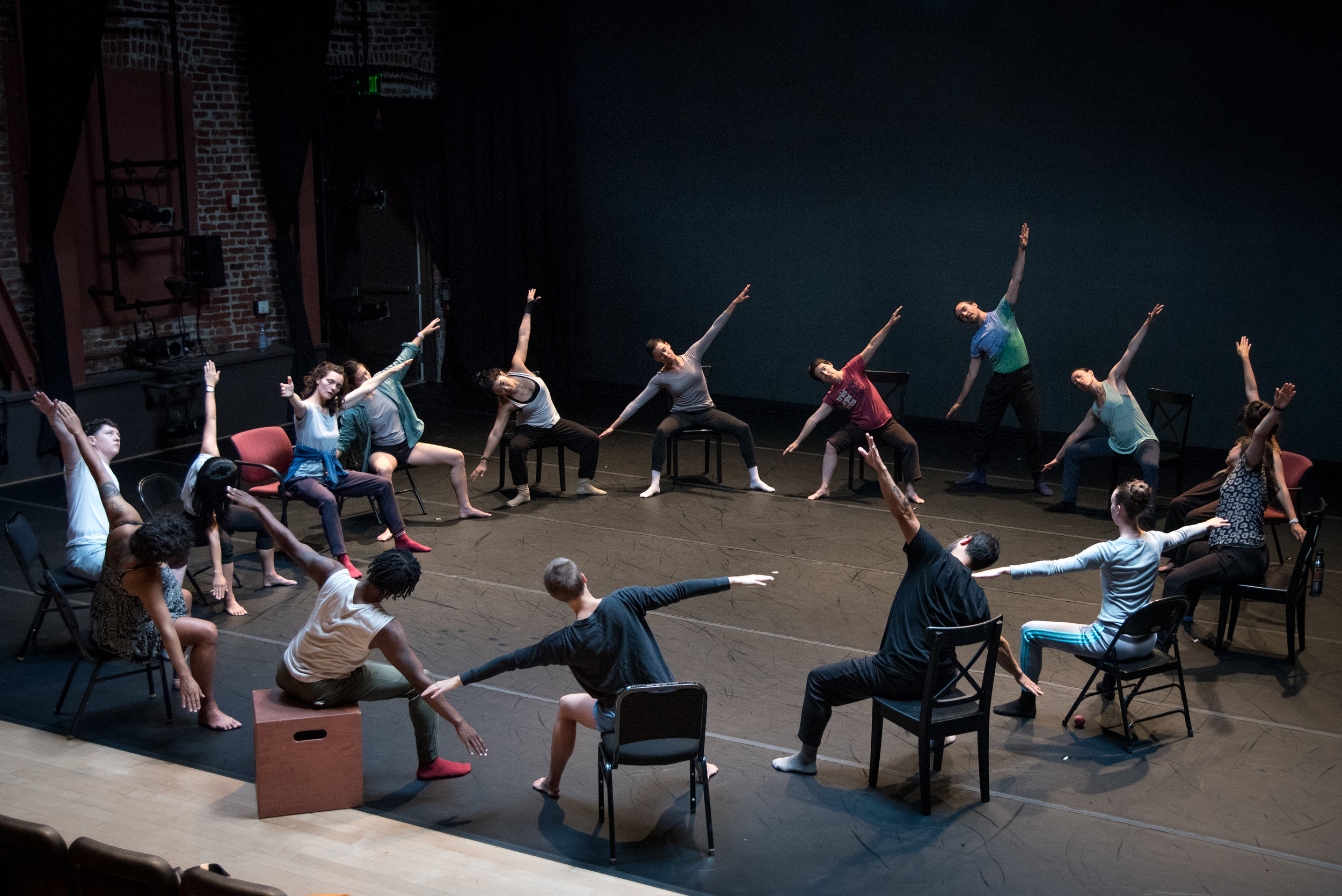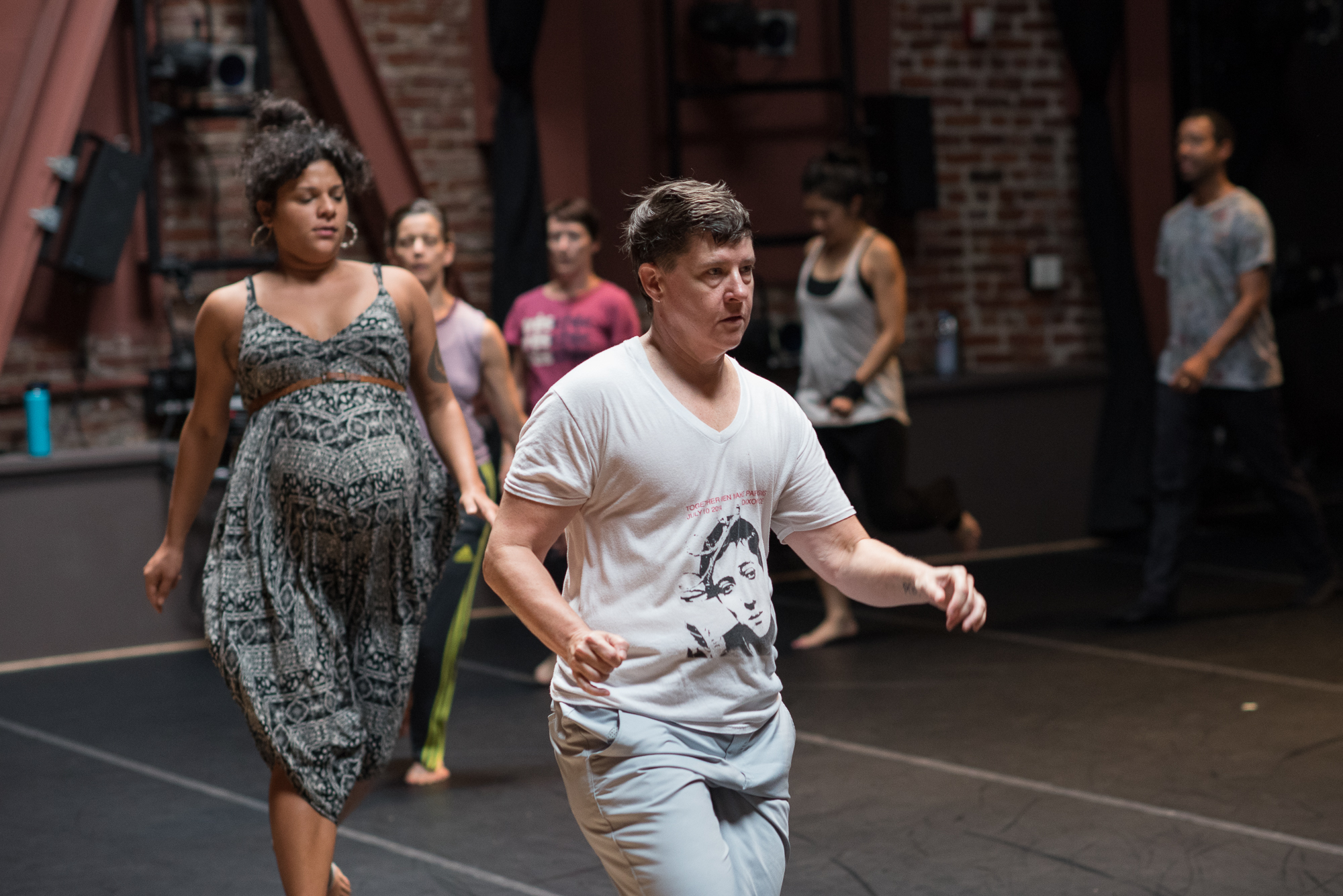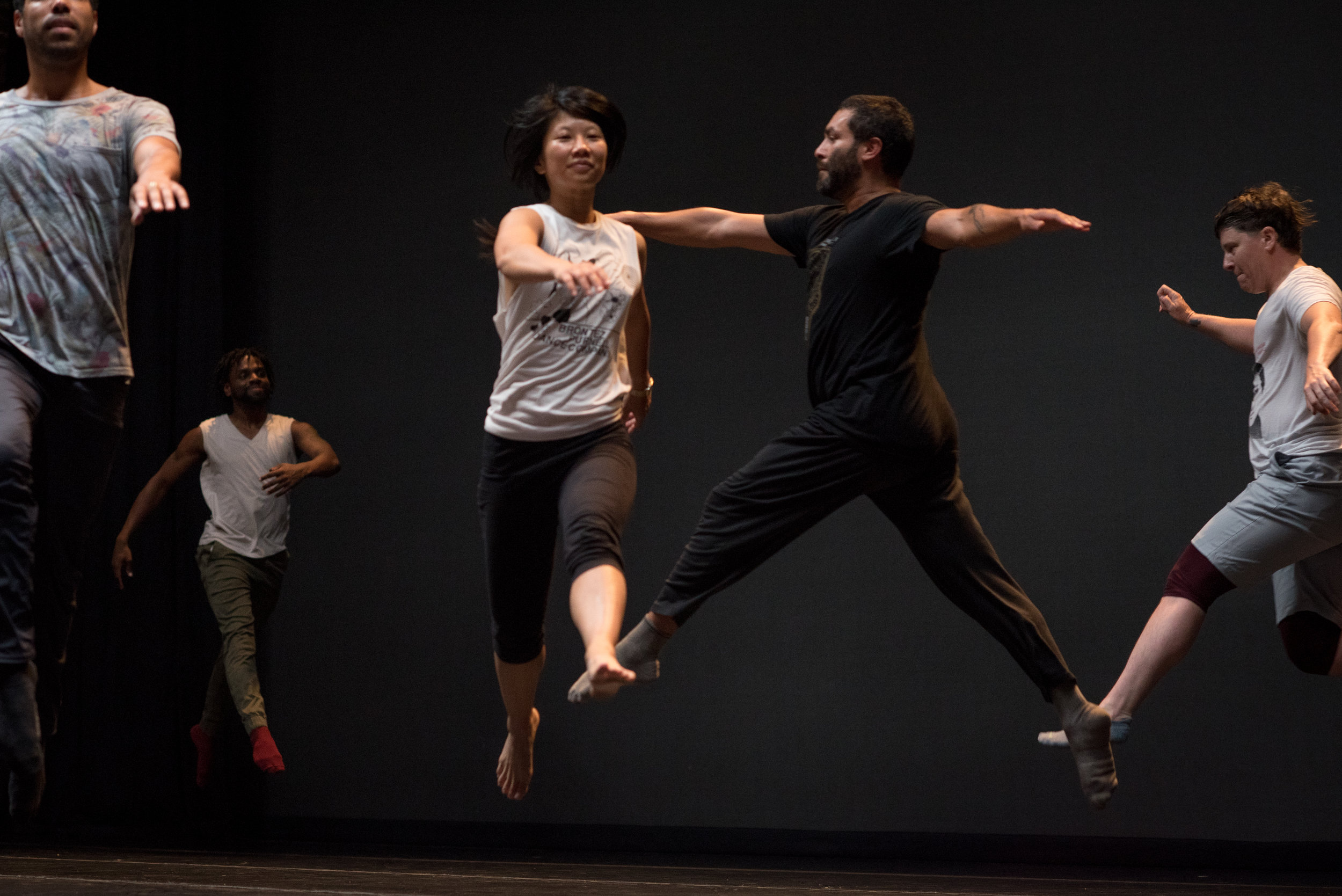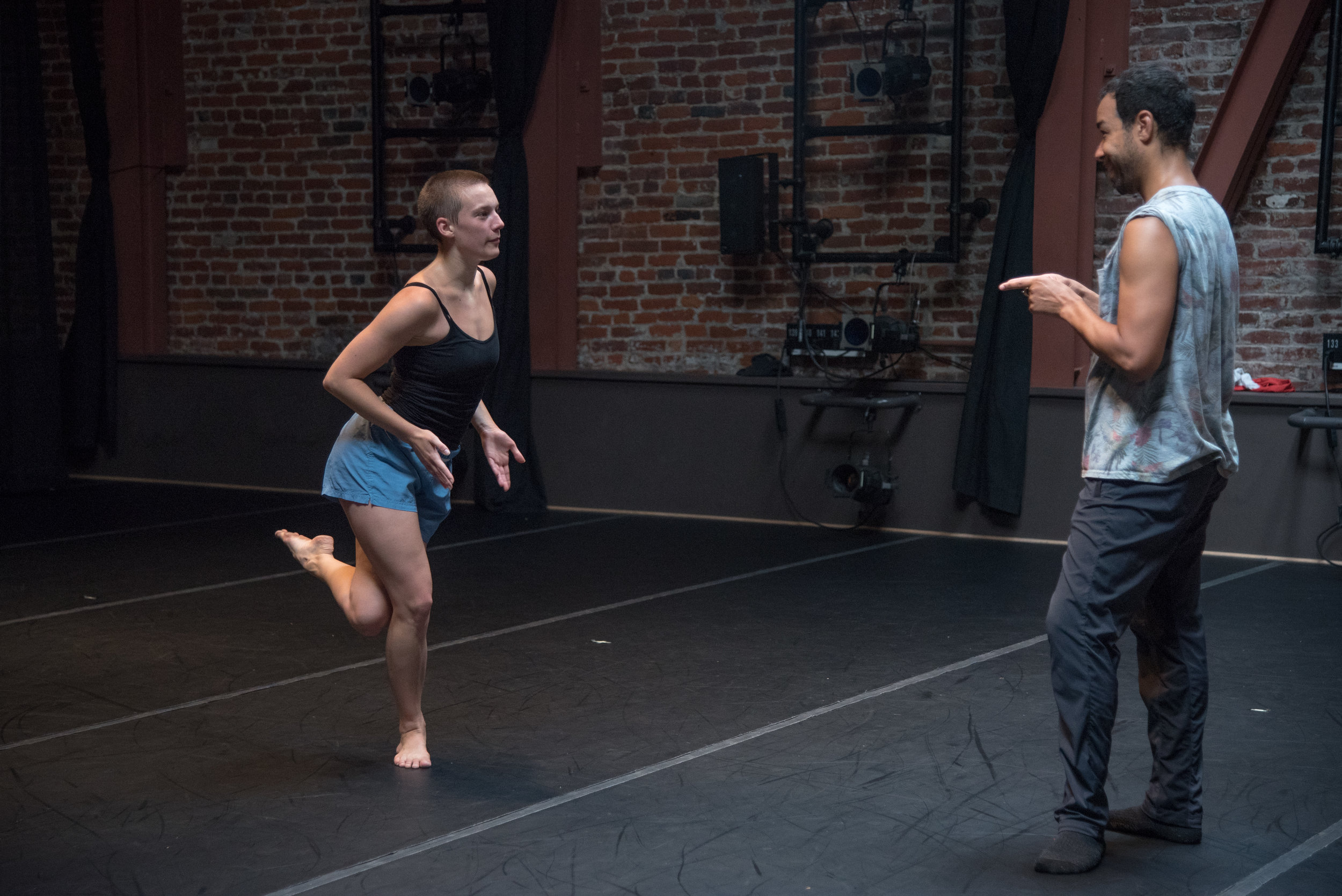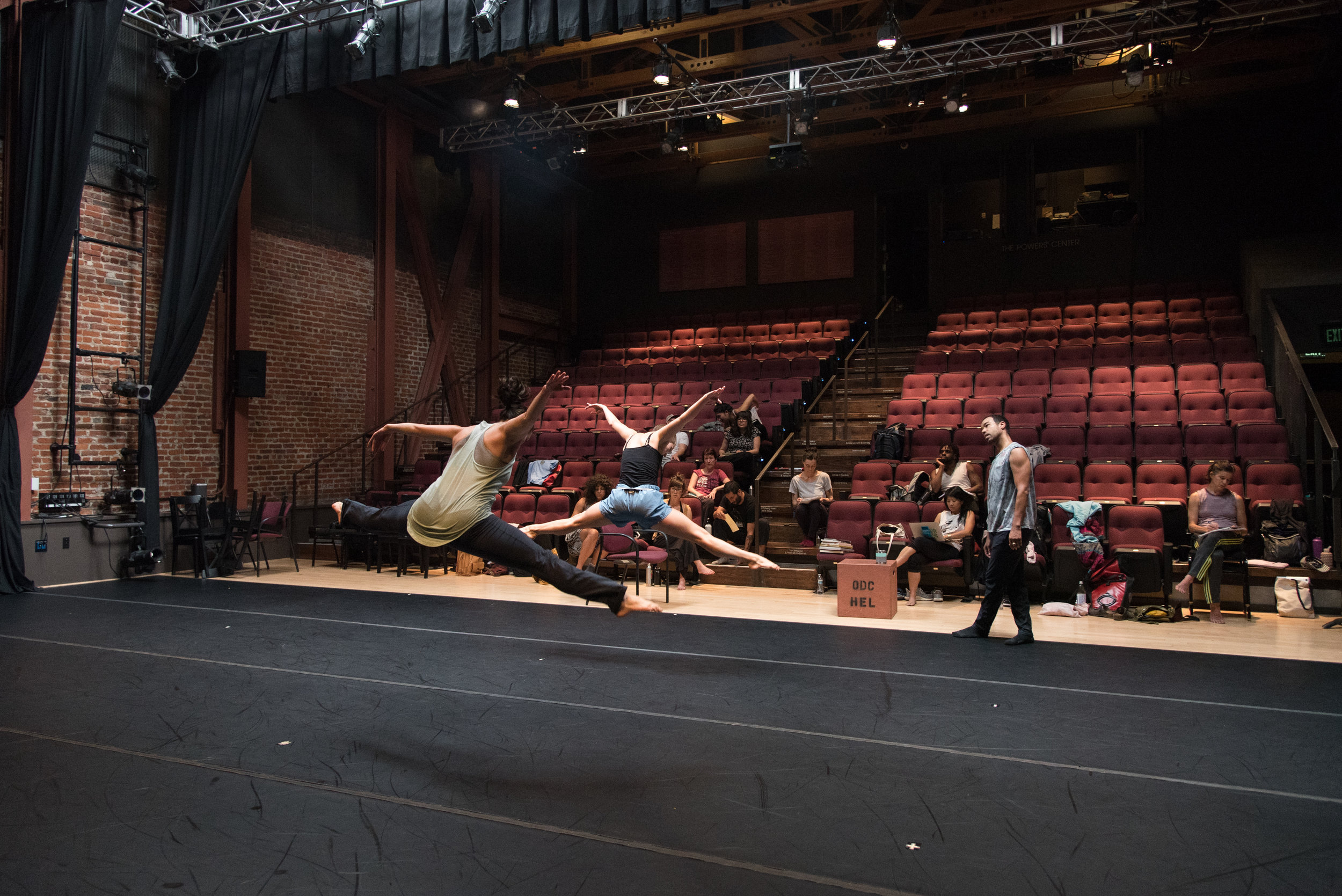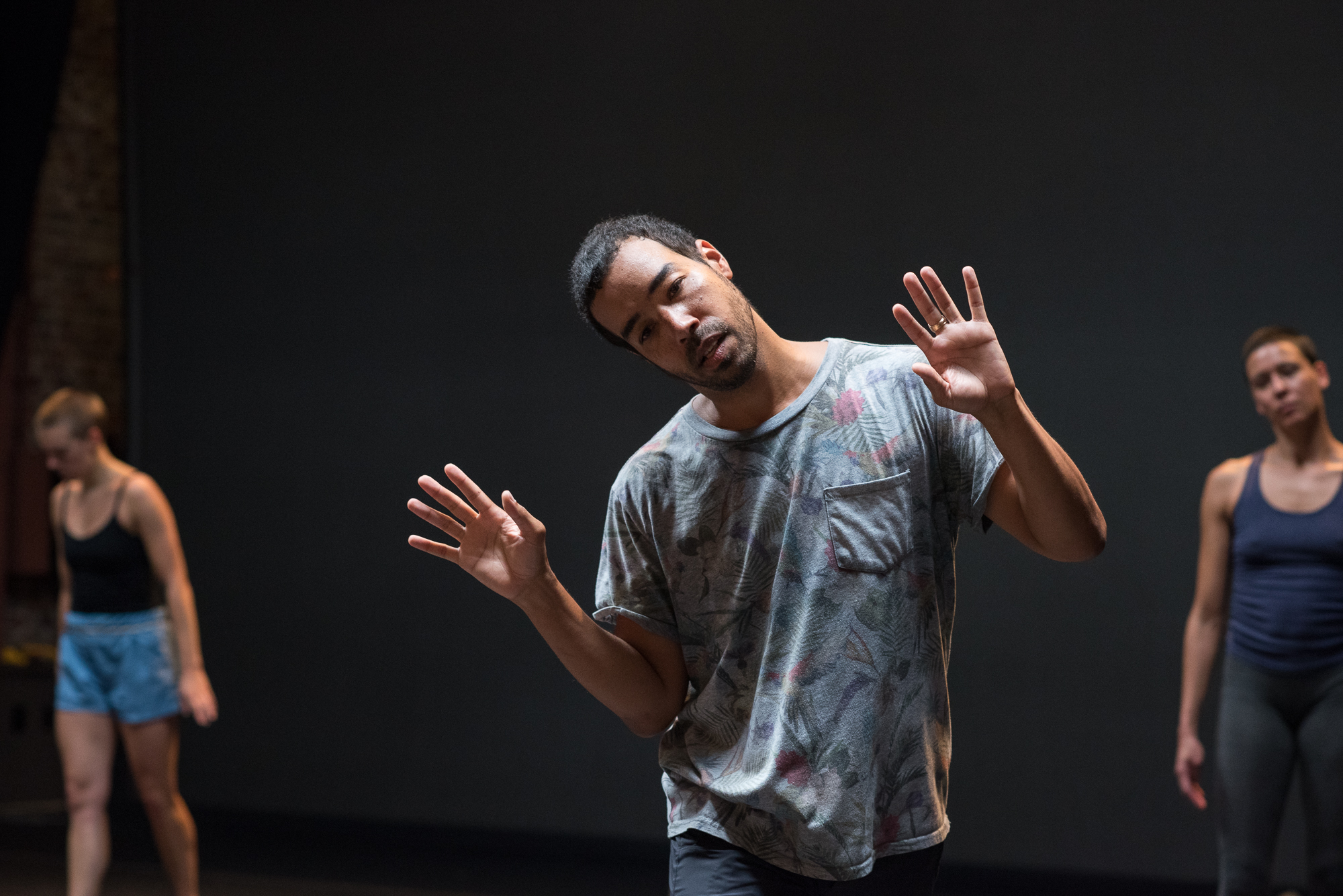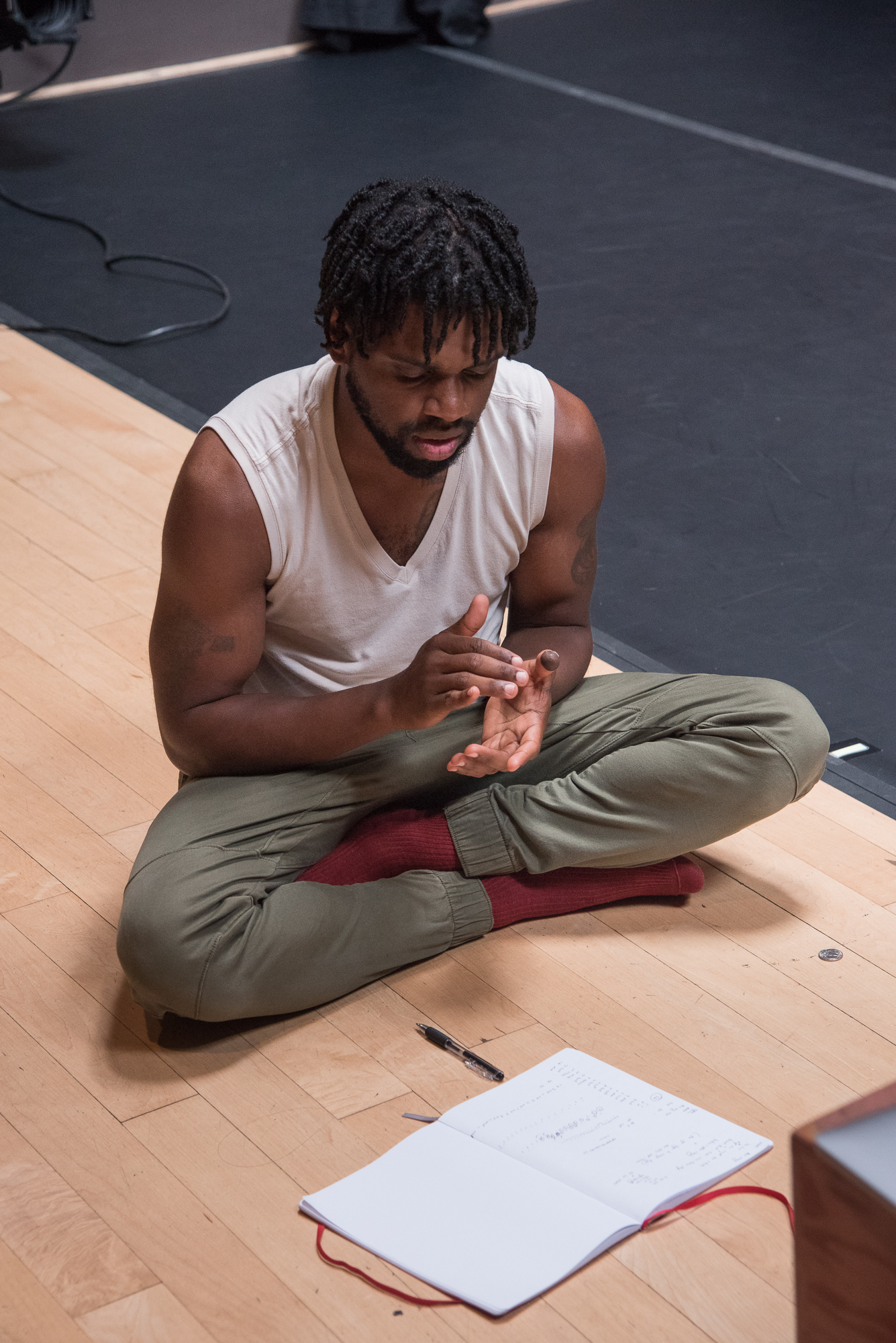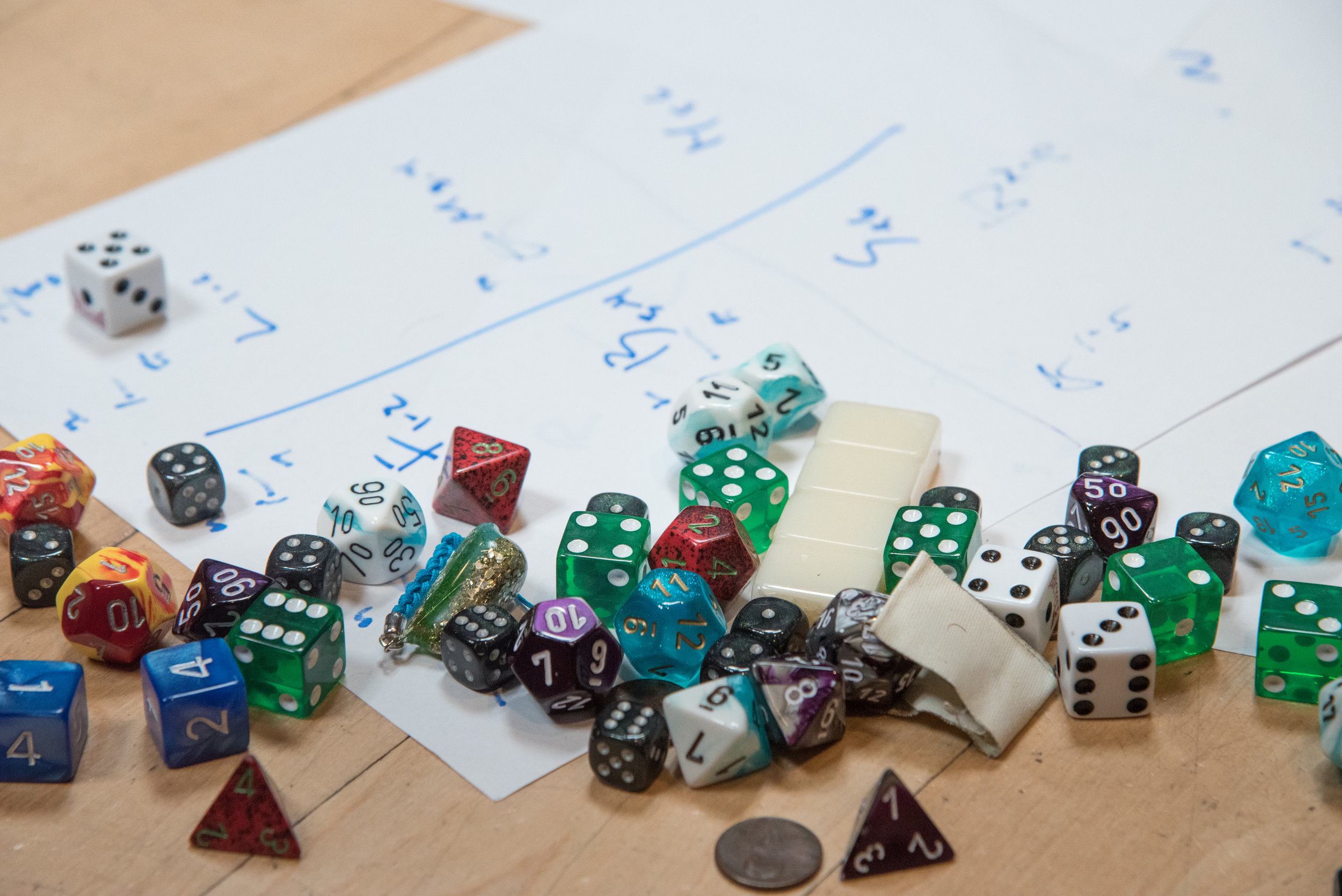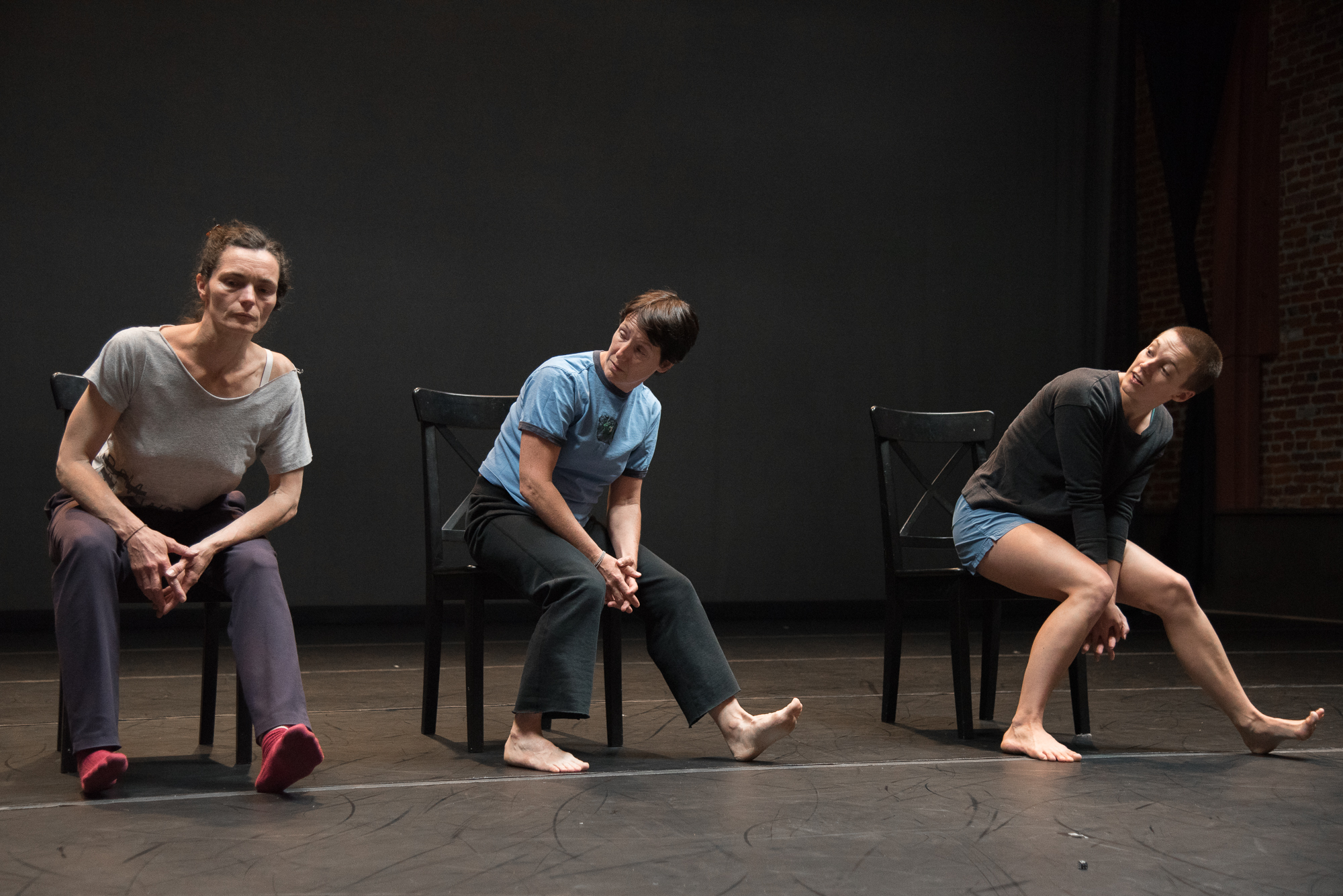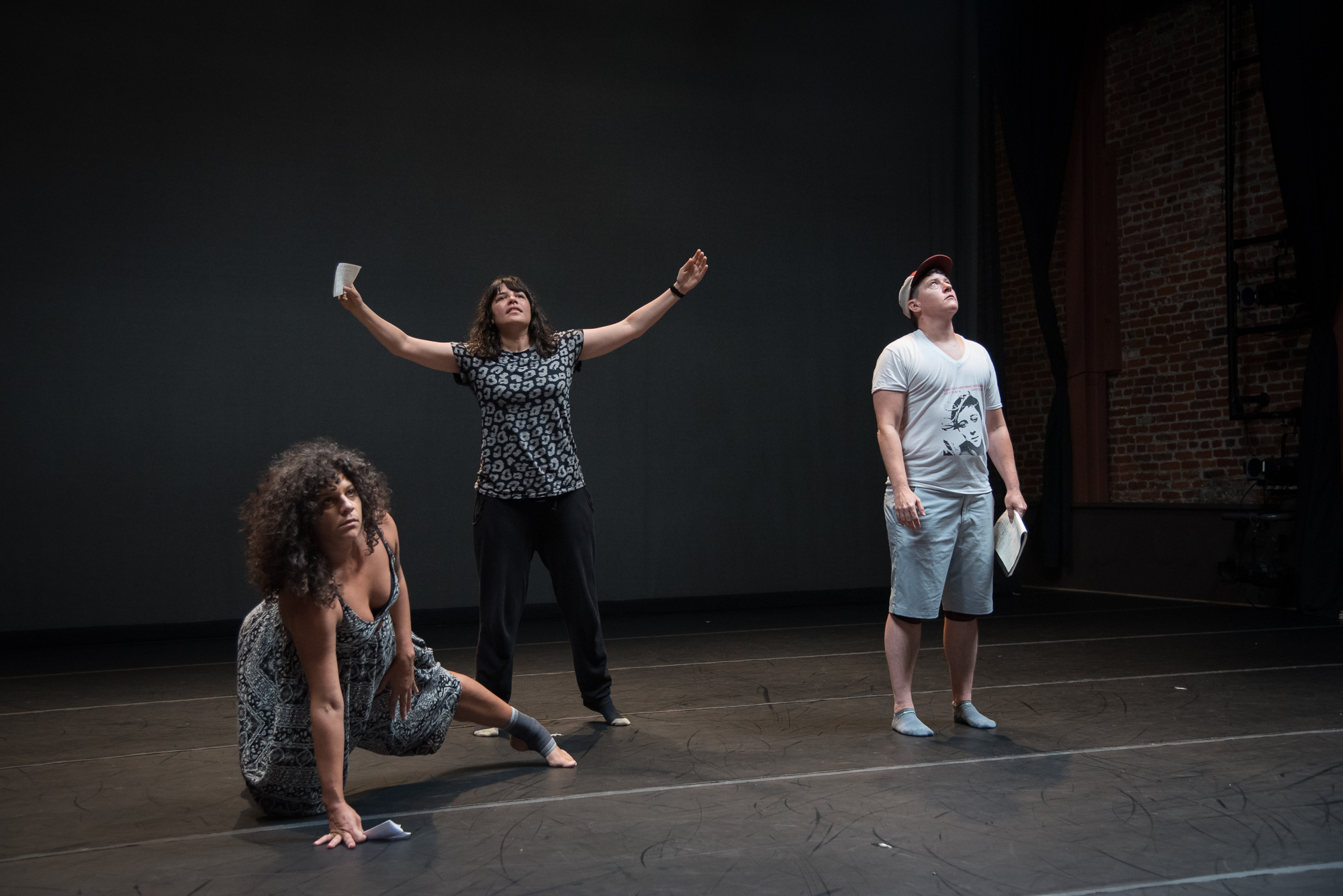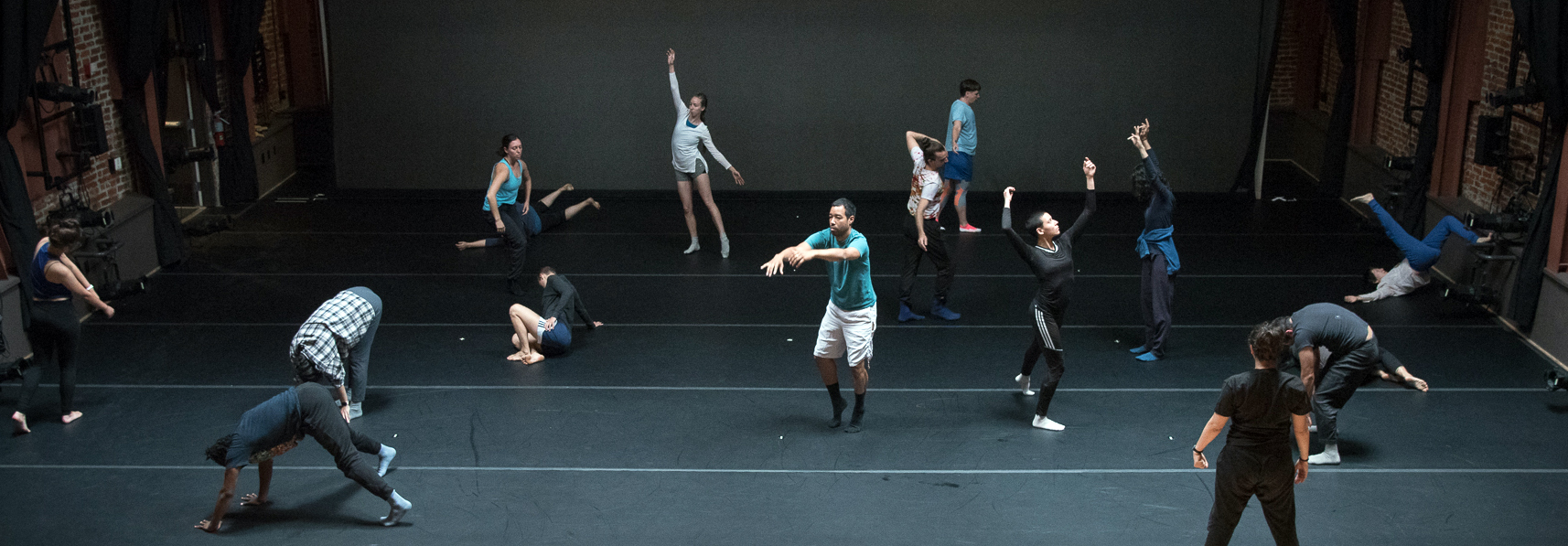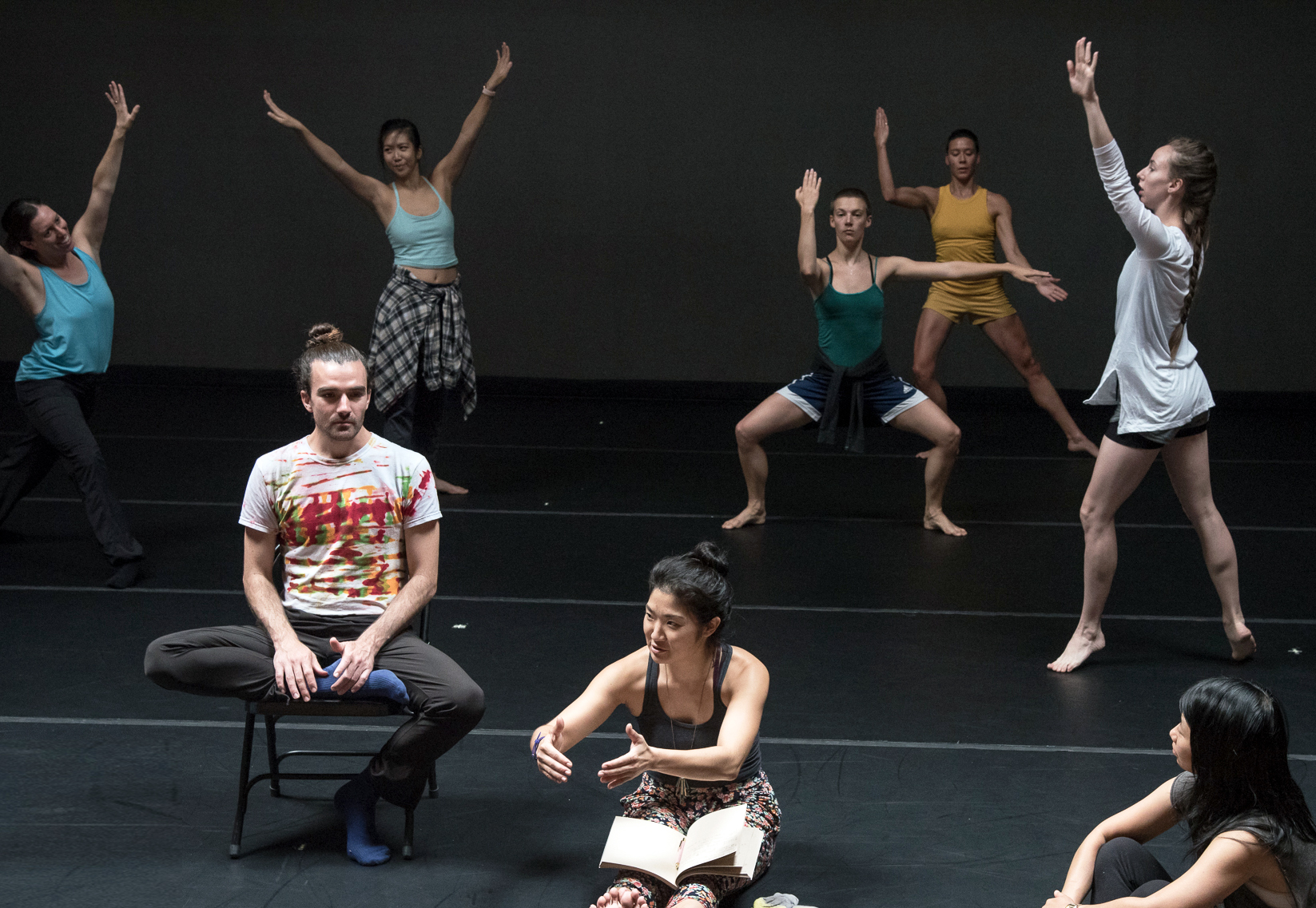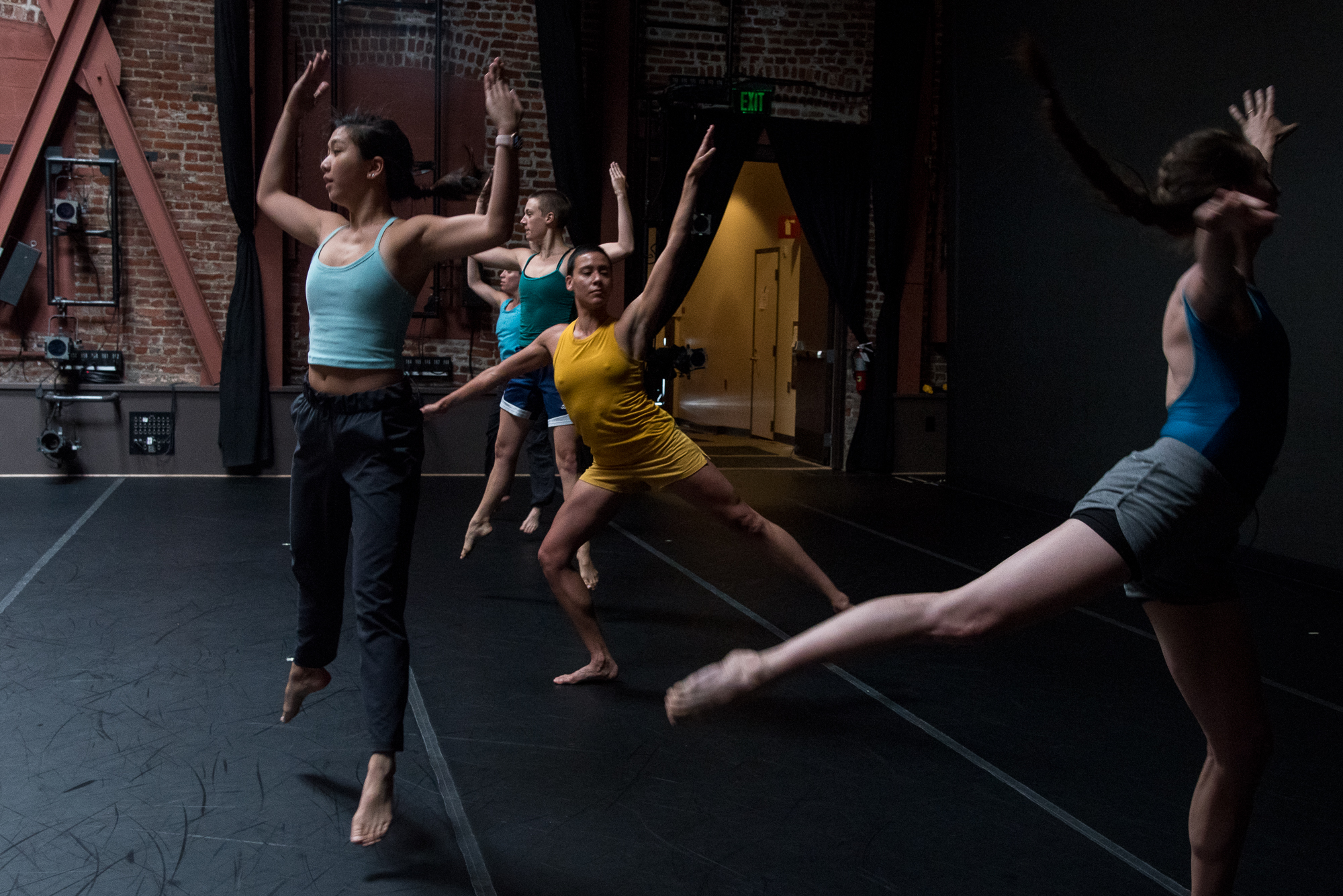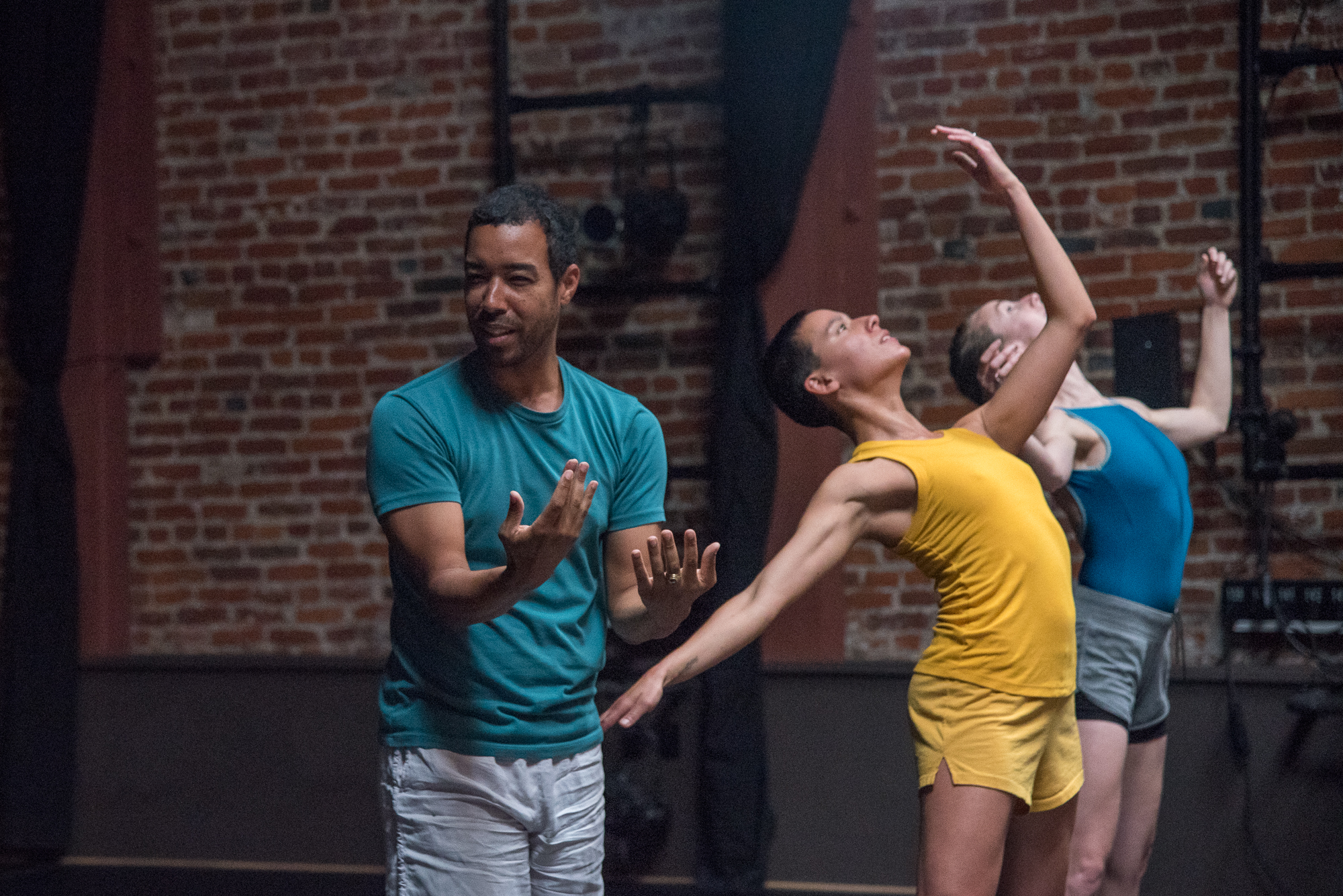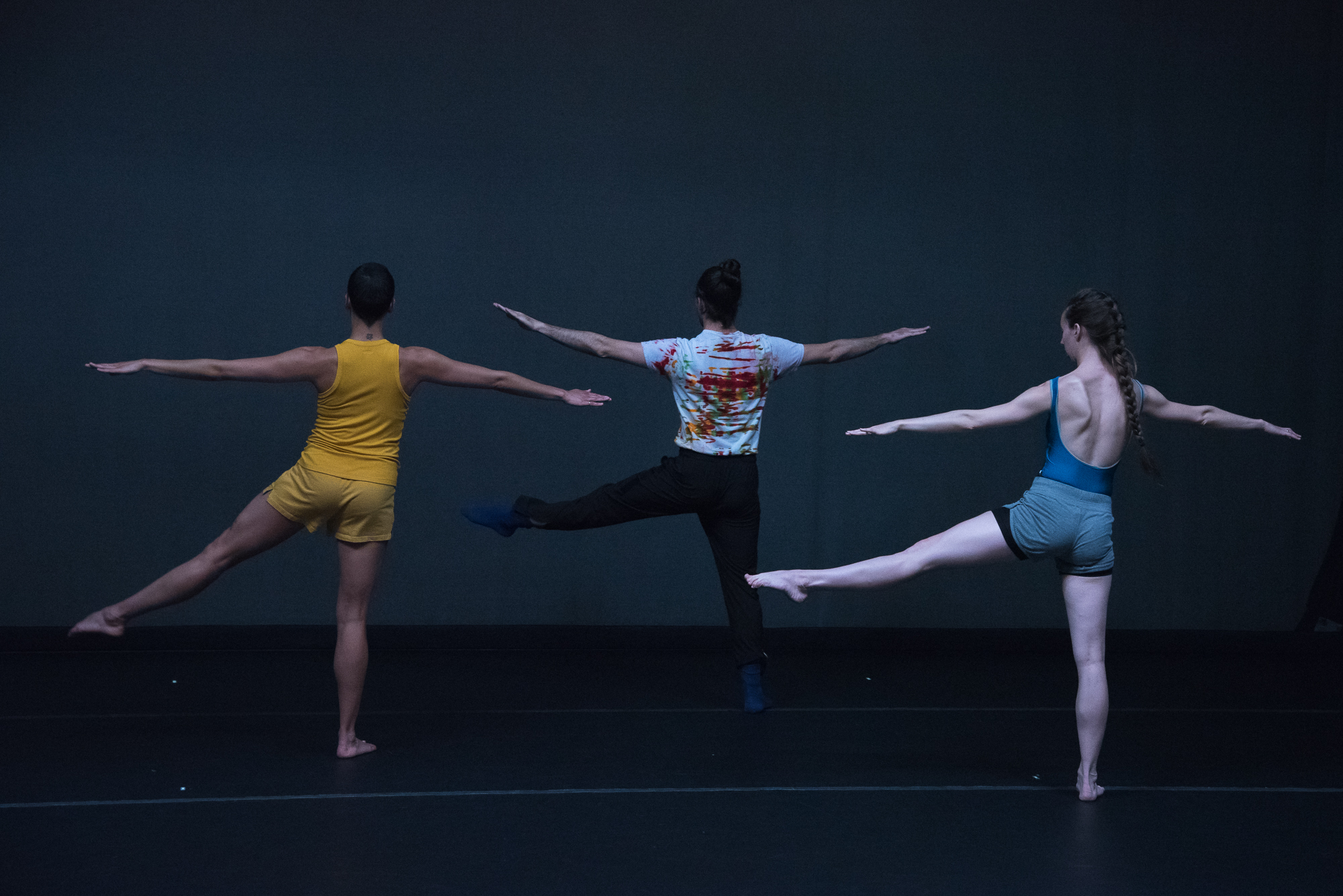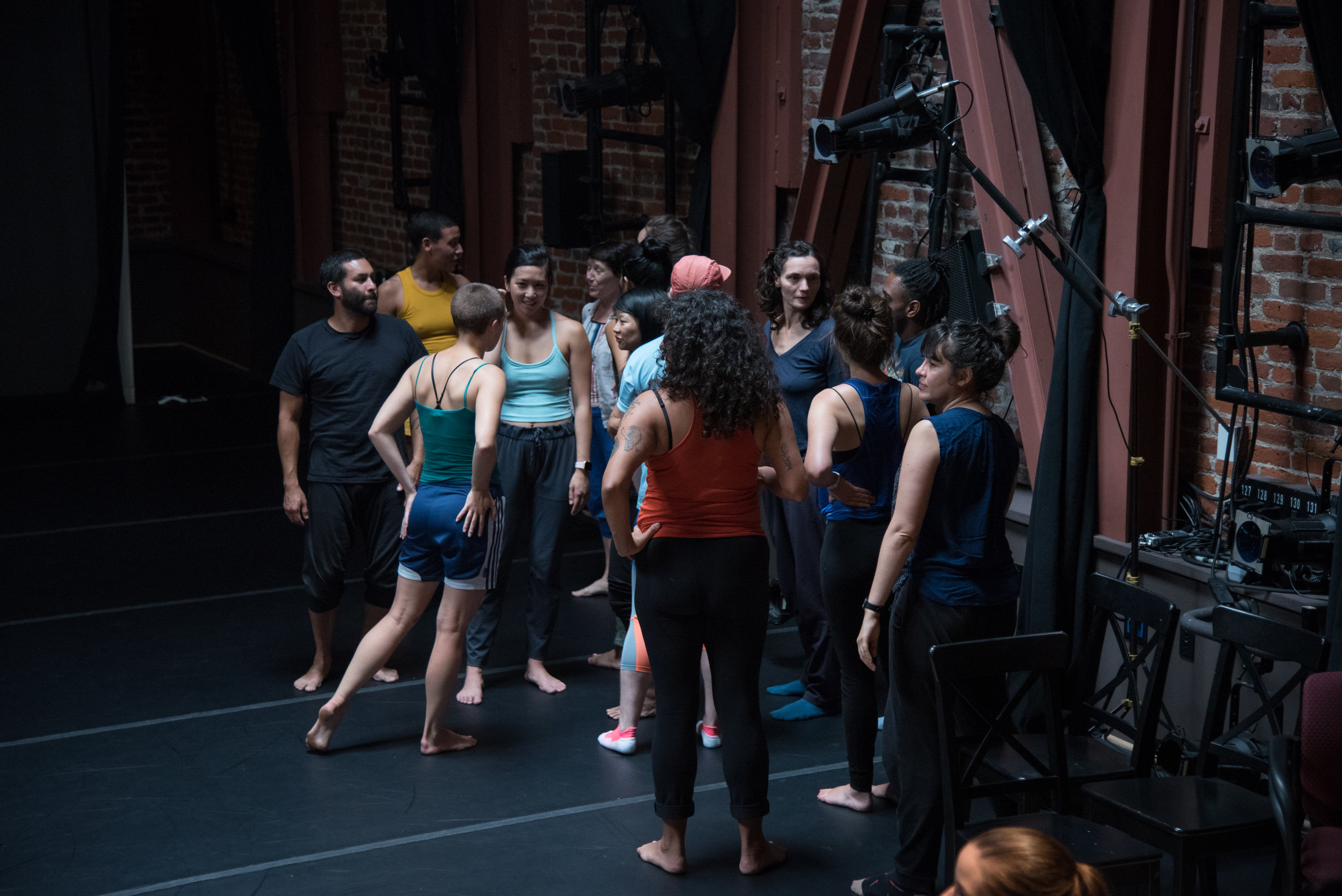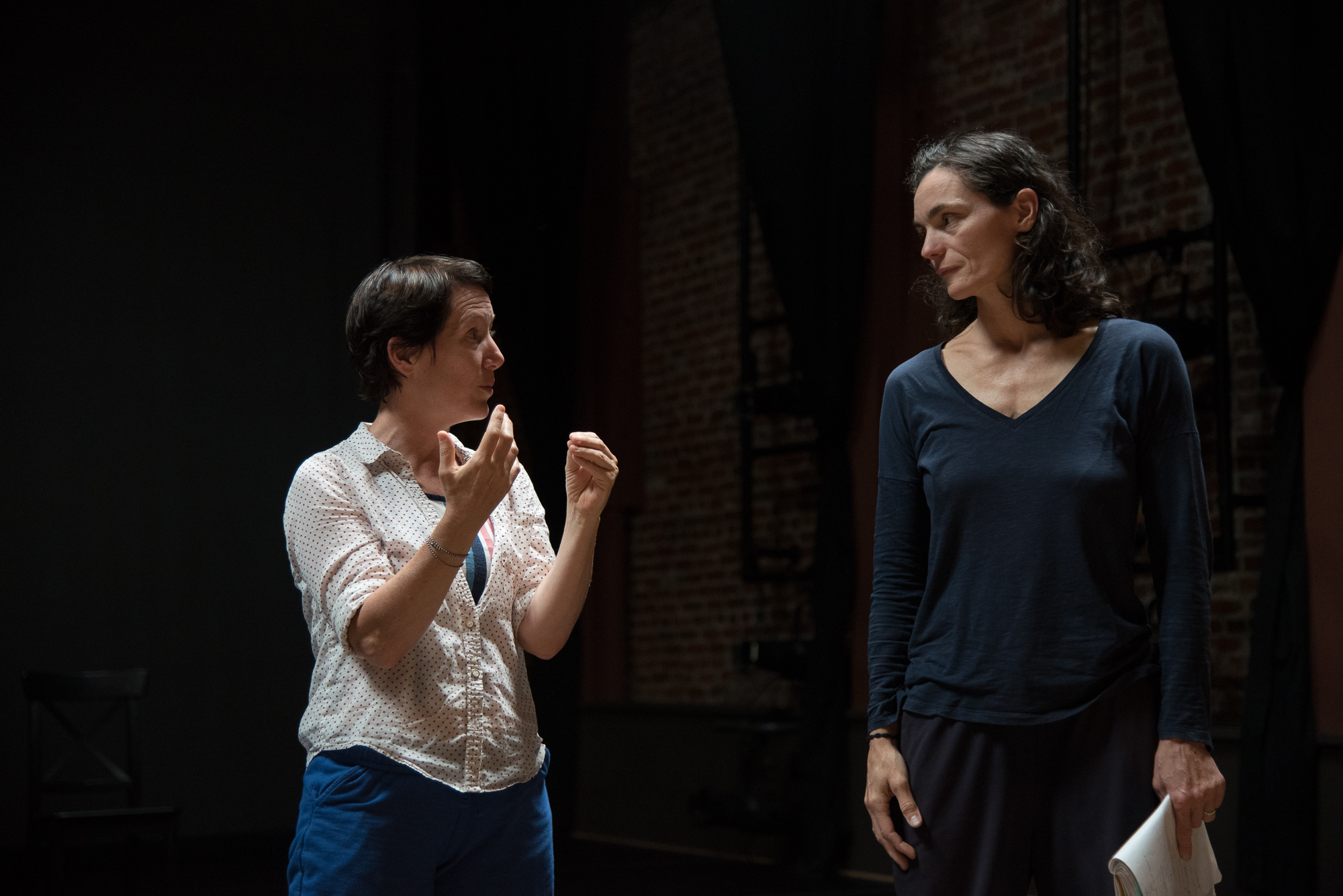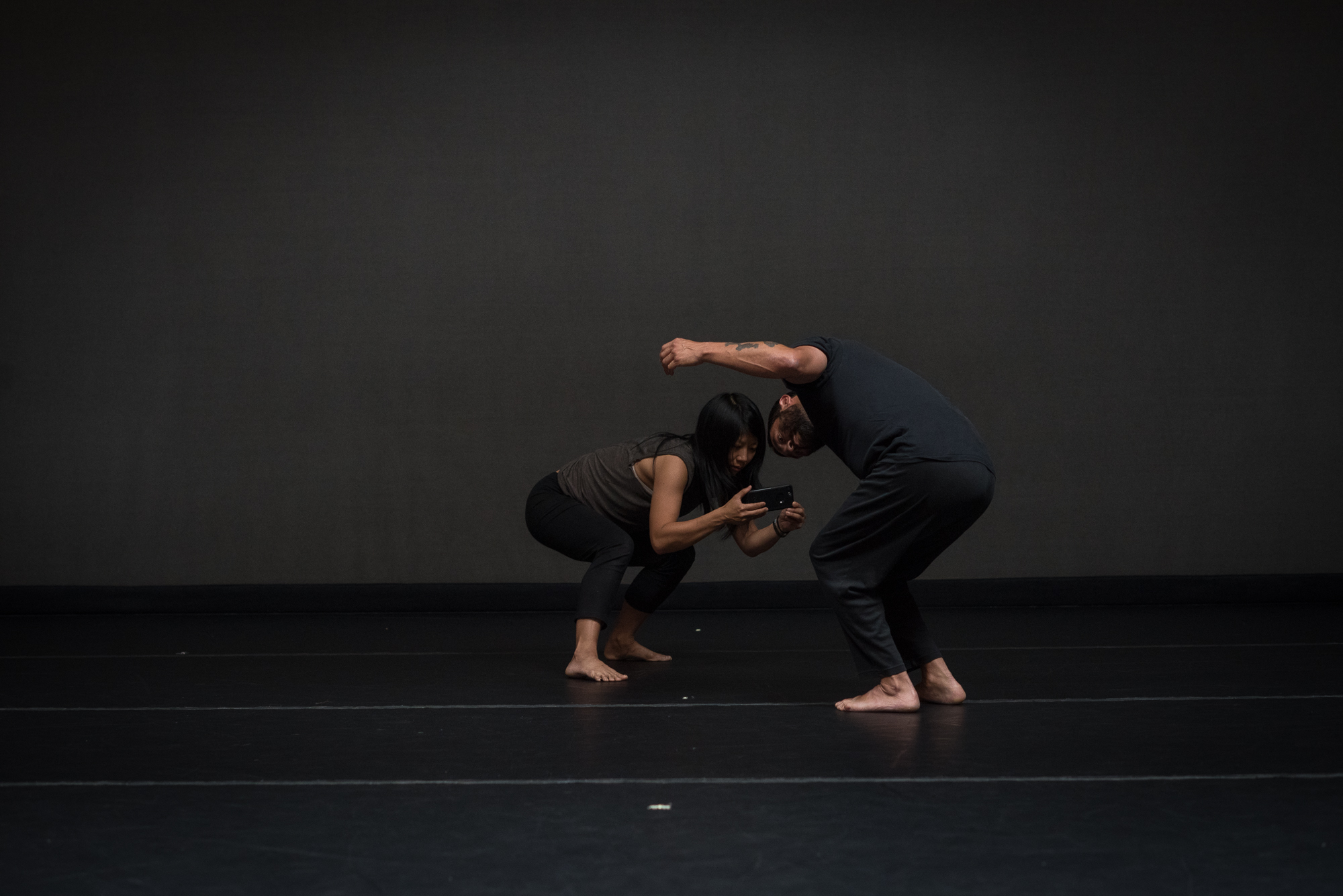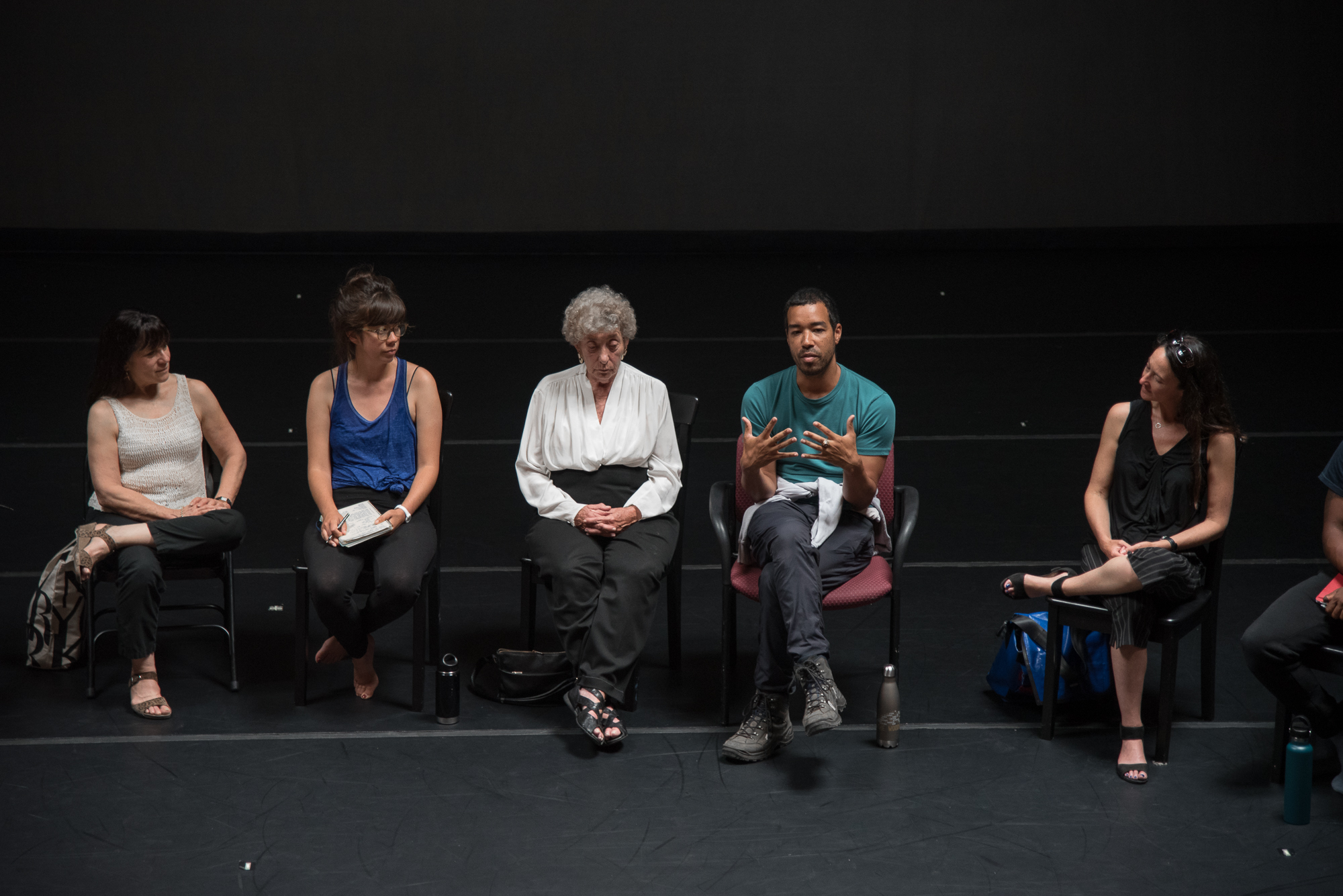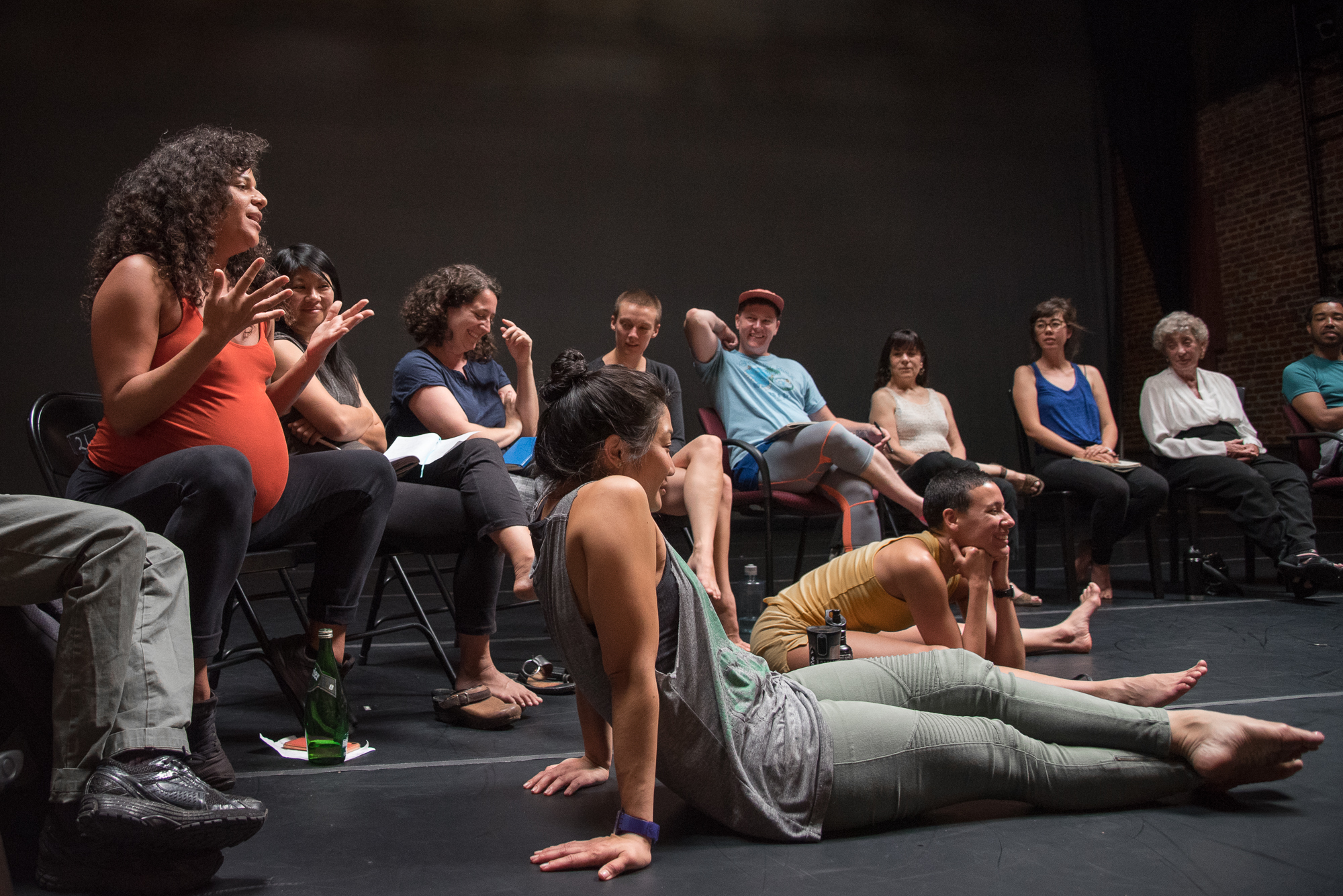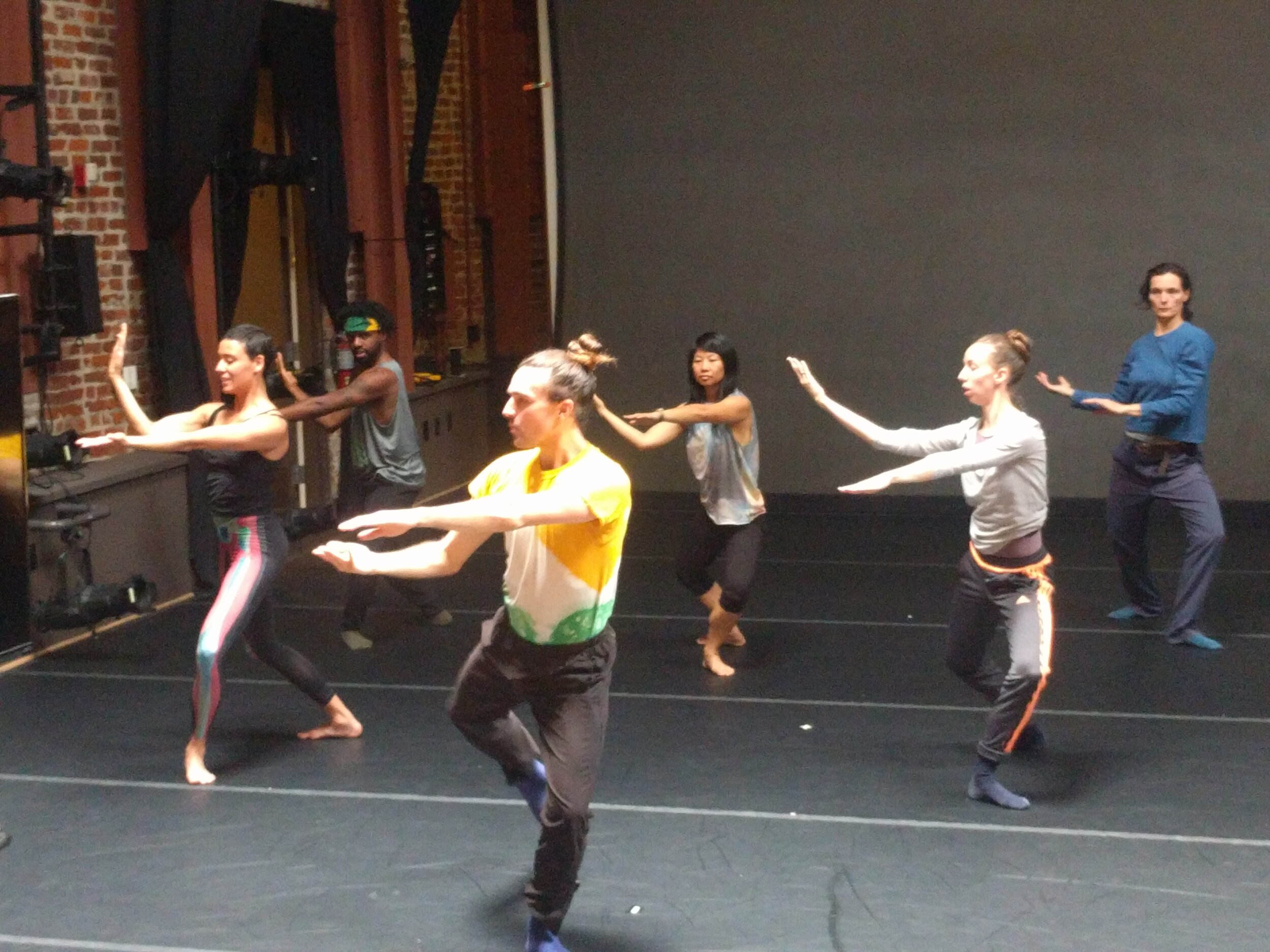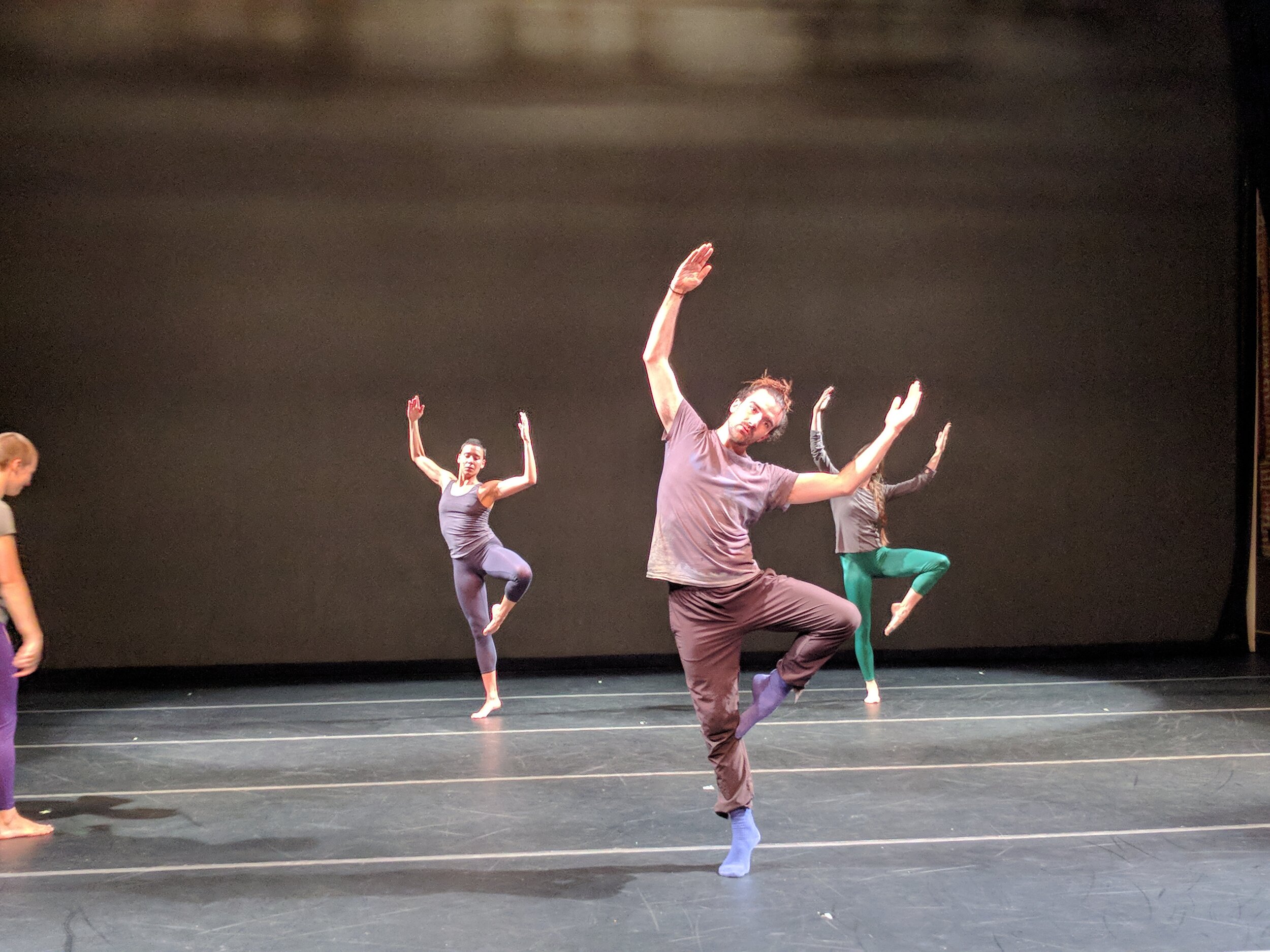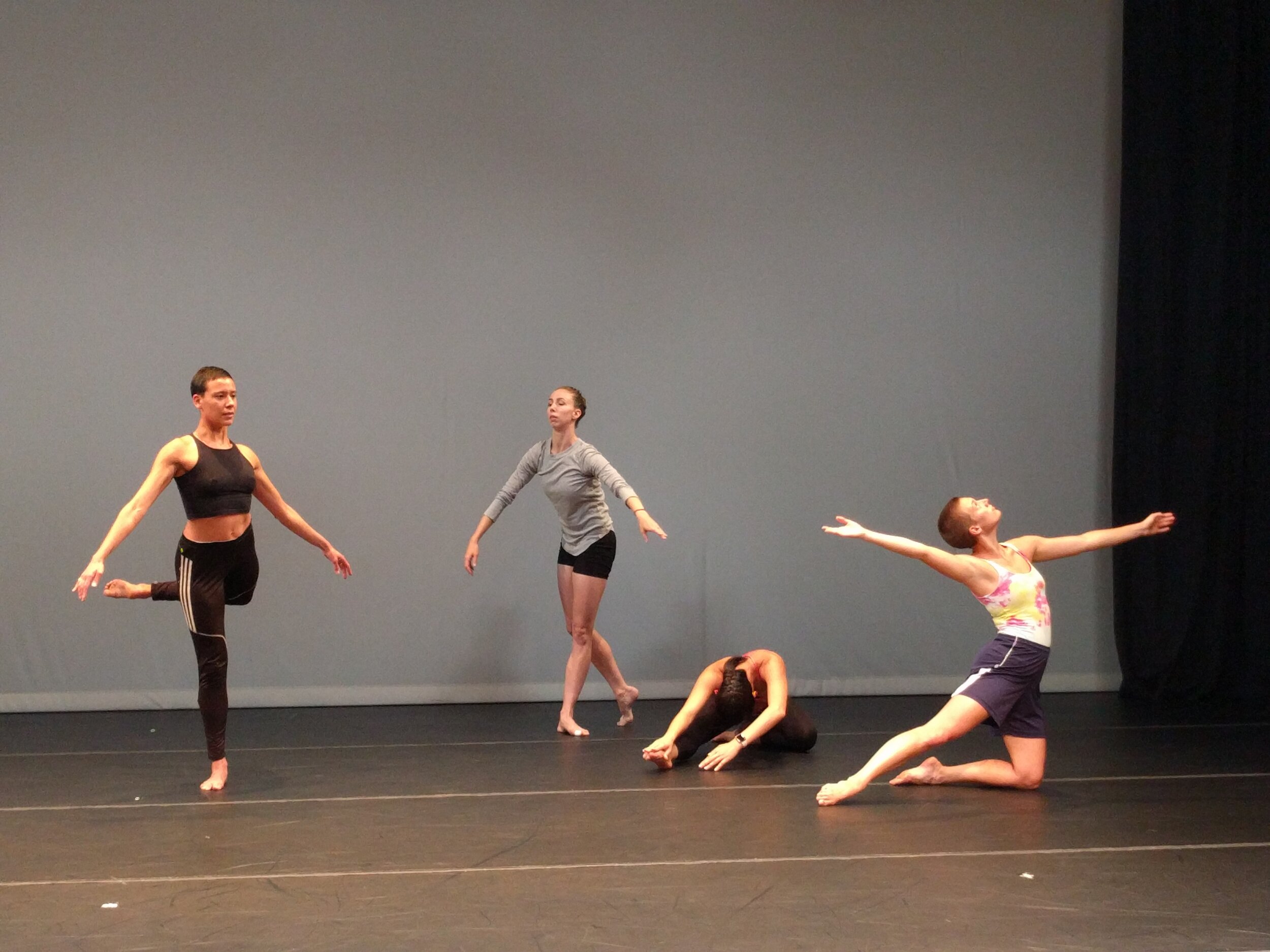Pictured above: Merce Cunningham in Sixteen Dances for Soloist and Company of Three (1951).
Photo credit: Gerda Peterich (1952).
HMD presents the 2019 Bridge Project
Signals from the West:
Bay Area Artists in Conversation with Merce Cunningham at 100
in collaboration with the Merce Cunningham Trust, ODC Theater and SFMOMA/Open Space
An official Merce Cunningham Centennial Community Program.
SCHEDULE OF EVENTS
All events took place at ODC Theater unless noted
AUG 10-11 Public Workshop and Audition for Dancers 10-4 PM
AUG 12-23 Residency for Commissioned Artists
AUG 16 & 23 Open rehearsals/Public Salons 3 PM
SEPT 26 Inherited Bodies 6 PM Women’s Building
NOV 7 Artist Talk with Rashaun Mitchell 7 PM
NOV 8 & 9 Performances/Installations 8 PM
Signals from the West Performance Photos. Photo Credit: Hillary Goidell
Signals from the West: Bay Area Artists in Conversation with Merce Cunningham at 100 is a bicoastal collaboration with the Merce Cunningham Trust, ODC Theater and SFMOMA’s Open Space as part of the international celebration of the Cunningham centennial. Signals from the West has commissioned ten Bay Area artists from diverse disciplines and backgrounds to participate in a residency August 12-23, 2019 with former Cunningham dancers Rashaun Mitchell and Silas Riener and create new works of art in response to this experience. These commissioned works will premiere, alongside excerpts of Cunningham repertory performed by Bay Area dancers selected through a workshop with Mitchell and Riener, at ODC Theater November 8 & 9, 2019. SFMOMA’s Open Space will commission an online series in conjunction with the program.
"What's unique about this program is that it looks beyond Merce Cunningham by way of new commissioned work. It focuses on a current generation of artists and their ties, thorny or otherwise, to this complex figure of modern and post-modern dance. Our hope is that we can facilitate these Bay Area visual artists, writers, musicians and choreographers to mine this body of work for treasures, rebalancing the components so new perspectives can emerge."
-Rashaun Mitchell, Merce Cunningham Trust Representative and Lead Teaching Artist for Signals from the West
To foreground difference, the project’s co-curators commissioned artists who represent a diversity of disciplines, perspectives, and ways of working and intentionally did not select anyone who has ever worked directly with the Cunningham company. The ten Bay Area commissioned artists are:
Sofia Cordova
Maxe Crandall
Alex Escalante
Christy Funsch
Julie Moon
Jenny Odell
Nicole Peisl
Danishta Rivero
Dazaun Soleyn
Sophia Wang
Commissioned artists, from top left: Maxe Crandall, Julie Moon, Dazaun Soleyn, Sofia Cordova, Christy Funsch, Sophia Wang, Nicole Peisl, Alex Escalante, Danishta Rivero, Jenny Odell
Signals from the West Residency. Photo credit: Hillary Goidell
Public Workshop and Audition for Dancers
August 10 & 11, 10-4 PM
A unique opportunity to study Cunningham technique and learn repertory with Rashuan Mitchell and Silas Riener, two acclaimed former members of the Cunningham company.
INHERITED BODIES
September 26, Women’s Building, San Francisco
As part of Signals from the West, HMD's Bridge Project and SFMOMA’s interdisciplinary arts and culture platform Open Space co-present
"INHERITED BODIES"
How do artists in different traditions contend with, honor, and resist the past?
Four artist lecture demonstrations followed by discussion
Women's Building, San Francisco
Thursday, September 26
6-8 PM.
FEATURING Sara Shelton Mann, Nadhi Thekkek, Snowflake Towers, and Jarrel Phillips
Featured artists will respond to the following prompts:
—How does history/the past operate in your work?
—Who or what are the giants in your tradition (whether forgotten or celebrated) and how do they figure in your work?
—How do you navigate between traditional and experimental forms in your work?
The event was moderated by Claudia La Rocco, Director of Community Engagement and Editor-in-Chief of Open Space at SFMOMA.
Press
"Signals from the West “encourages a critical, probing engagement with Cunningham, one befitting the artist’s own restless disposition"
--Sam Lefebvre, “Merce Cunningham Artist Residency Celebrates, Challenges Dance Luminary,” KQED Arts August 26, 2019
“There is so much to say about the talent here and every single performance was wildly imaginative and held together in Cunningham’s spirit of innovation, abstraction, spatial awareness and collaboration.”
—Rebecca Stoddard, Rainbow Round Table Book and Media Reviews
--Suzannah Friscia, “Repeating History - Is the Dance World Too Precious with its Classic Works?,” Dance Magazine January 2020
--Leena Joshi, “The Sounds We’re Hearing Are the Sounds of a Gay Ghost, ” SF MOMA Open Space December 09, 2019
--Garth Grimball, “A Bridge to Cunningham in Six Quotations, ” Life as a Modern Dancer November 26, 2019
--“Merce Cunningham-Inspired Performances Premiere at ODC Theater This Weekend, ” KQED Arts the DO List November 2019
--Sima Belmar, “An Invitation to Stumble, ” ODC Dance Stories November 16, 2019
"ambitious, challenging and often mesmerizing”
--Rita Felciano, “‘The Body Is the Brain’ - Hope Mohr",” DanceViewTimes November 8, 2019
--Rashaun Mitchell, Silas Riener, & Claudia La Rocco, “Already & Not Yet: Rashaun Mitchell and Silas Riener in Conversation with Claudia La Rocco, ” SF MOMA Open Space November 7, 2019
--KALW’s Open Air with host David Latulippe, November 7, 2019
“remarkable and varied works bridging past and future - just the sort of paths, I imagine, Cunningham himself would want to take”
--Melissa Hudson Bell, “Dancing with a Ghost: Bay Area artists honor Merce Cunningham, ” SF Chronicle November 4, 2019
--Ruth Gebreyesus, “Mobile Homes, ” SF MOMA Open Space October 31, 2019
“Hope Mohr Dance honors an iconic American choreographer with the forward-tilting 2019 Bridge Project”
--Lou Fancher, “Merce Cunningham’s Century,” San Francisco Classical Voice October 29, 2019
--Hope Mohr, “Self and System, ” SF MOMA Open Space October 24, 2019
"The initiative promises not only premieres, but also searching conversation as to what dance — this most ephemeral and physically vulnerable of arts — has to offer as its connecting essence during disconnected times…. a fresh encounter with Cunningham’s legacy"
--Rachel Howard, “Fall Bay Area dance includes Merce Cunningham and Johnny Cash,” SF Chronicle’s Fall Arts Preview August 19, 2019
——————————————————-
Photo by Tetsu Kubota.
ABOUT RASHAUN MITCHELL AND SILAS RIENER
Representatives of the Merce Cunningham Trust and
Lead Teaching Artists for Bay Area Artists In Conversation with Merce at 100
Since 2010 Rashaun Mitchell + Silas Riener have created dance in response to complex and active spatial environments, often merging elements of fantasy, absurdity, and quiet contemplation into challenging multifaceted performance. After working together in the Merce Cunningham Dance Company, Mitchell and Riener developed a keen interest in the way abstraction and representation coincide in the body. Their collaborative work takes many forms, from site-specific installations, improvisational dances, and traditional proscenium pieces to highly crafted and intimate, immersive experiences. Historical influences and aesthetic forms collapse into a visually charged hybrid physical language. Together they have been part of Lower Manhattan Cultural Council’s Extended Life Dance Development program, the New York City Center Choreographic Fellowship, and have been artists in residence at EMPAC, Mount Tremper Arts, Wellesley College, Jacob’s Pillow, and Pieter. Their work has been presented at MOMA PS1 as part of Greater NY, The Chocolate Factory, New York Live Arts, Danspace Project, REDCAT, ICA Boston and Summer Stages Dance, the Walker Art Center, the Museum of Contemporary Art Chicago, On the Boards, and the Brooklyn Academy of Music among many others. www.rashaunsilasdance.com
——————————————————-
CURATORIAL STATEMENTS
Hope Mohr, Director of The Bridge Project
“By offering up the basic component of the physical self to influence by another, the very foundations of one’s cultural understanding are thrown into relief…. because the physical body and its techniques are never abstract, but rather ineluctably located within a historical moment and a cultural/political system, any confrontation between two or more physical techniques has unavoidable historical and political resonances.”
-- Katherine Profeta, Dramaturgy in Motion: At Work on Dance and Movement Performance, University of Wisconsin Press (2015), page 66 (discussing Andre Lepecki’s ‘The Body as Archive: Will to Re-Enact and the Afterlives of Dances,’ Dance Research Journal 42, No. 2 (Winter 2010)).
HMD’s intention behind Bay Area Artists Respond to Merce Cunningham at 100 is not to create nostalgia or further canonize Cunningham’s work, but rather to create a space for contemporary cultural exchange. Teaching Cunningham’s repertory will be a point of departure for new artistic activity, not an endpoint in itself. The project will:
Inspire new works of contemporary art
Facilitate collaboration across disciplines
Create a space for choreographic transmission that allows for individual and cultural expression
The Merce project asks questions about authorship and culture such as:
What different forms can artistic lineage take?
Who and how does lineage exclude?
How does responding to someone else’s lineage/practice influence or challenge your own voice?
How does artmaking rooted in one particular body differ from artmaking rooted in hybrid, collaborative and/or multidisciplinary authorship?
What is the relationship between abstraction and cultural identity?
Claudia LaRocco, Editor in Chief of SFMOMA’s Open Space
Advocacy for the continued vitality of the Bay Area’s diverse mix of artistic expression is central to the mission of Open Space. We’re interested in what it means to speak of and from this place, in this time — and we believe that this conversation happens not in a vacuum but in relation to other places, and other times. We’re therefore delighted to be collaborating with the Merce Cunningham Trust, HMD’s Bridge Project, and ODC Theater to present Bay Area Artists Respond to Merce at 100, an interdisciplinary, intergenerational project that seeks to foster contemporary voices, create context for those voices, and reflect on how they relate to both the current moment and historical legacies.
Julie Potter, Director ODC Theater
As ODC Theater is committed to contemporary artists, the creation of new performance and transmissions of dance, we look forward to participating in Bay Area Artists Respond to Merce at 100, a dialogic project, in which select dances from the repertoire of Cunningham are transmitted, transformed and generative of a live research process and development of new work.
“The repertoire enacts embodied memory: performances, gestures, orality, movement, dance, singing - in short, all those acts usually thought of as ephemeral, nonreproducible knowledge. Repertoire, etymologically “a treasury, an inventory,” also allows for individual agency, referring also to “the finder, discoverer,” and meaning “to find out.” The repertoire requires presence: people participate in the production and reproduction of knowledge by “being there,” being a part of the transmission.” - Diana Taylor, The Archive and the Repertoire, Duke University Press (2003), page 20.
Encountering Cunningham dances as passed by Rashaun Mitchell and Silas Riener, ten Bay Area artists across disciplines will employ their own artistic voices and collaborations, developing new works to be presented with reperformed pieces in situ. In this way, the residency serves as a place of deliberation between Cunningham and living artists who are immersed in the conditions and particularities of this moment.
ABOUT THE COMMISSIONED ARTISTS
Born in 1985 in Carolina, Puerto Rico and currently based in Oakland, California, Sofía Córdova's work considers sci-fi, dance and music culture(s), the internet, mystical things, extinction and mutation, migration and diaspora, as well as climate change especially as they relate to the lives of women, trans, +/or queer bodies, particularly those of color, under the conditions of late capitalism and its technologies. She first moved to the US to begin undergraduate studies at Bard College at Simon’s Rock. She completed her BFA at St. John’s University in conjunction with the International Center for Photography in NYC in 2006. In 2010 She received her MFA from the California College of the Arts. She has exhibited and performed at SFMOMA, the ASU Museum, the Vincent Price Museum and international venues such as Art Hub in Shanghai and MEWO Kunsthalle in Germany. She has participated in residencies at Mills College Museum, the ASU Museum in Phoenix, and the Headlands Center for the Arts. Her work was featured in the latest edition of Bay Area Now at San Francisco’s YBCA and is part of Pier 24’s and The Whitney Museum’s permanent collections. It has been the subject of a First Look feature in Art in America.
Maxe Crandall is a poet and performance maker whose work engages experimental forms in political contexts. His plays and productions include Together Men Make Paradigms, Underwater Wedding, Emoji for Cher Heart, and extreme lyric I, a collaboration with Hope Mohr Dance. Maxe’s writing on art and performance has appeared in publications including Women and Performance, SFMOMA’s Open Space, Critical Correspondence, Jacket2, Transgender Studies Quarterly, and Transgender History in 99 Objects. A recipient of fellowships from the Poetry Project, Poets House, Lambda Literary, and the Millay Colony for the Arts, Maxe teaches in the Feminist, Gender, and Sexuality Studies Program at Stanford University. His novel about AIDS archives The Nancy Reagan Collection is forthcoming from Futurepoem. maxecrandall.com
Alex Escalante is originally from Los Angeles, CA but spent the last two decades in NYC working as a dancer, choreographer, actor, photographer, and carpenter. He was also a teaching artist working with at-risk youth in public schools. Alex recently relocated back to CA and is enjoying his new surroundings in the Bay Area.
Christy Funsch formed Funsch Dance in 2002 and has since been presented nationally and internationally. She has enjoyed rich collaborations with Stephen Pelton, Nol Simonse, Julie Mayo, Peiling Kao, and she has also worked with Susan Rethorst, Katie Faulkner, Dandelion Dancetheater, and many others. She holds an MFA and a Laban Movement Analysis Certification, and she has been awarded choreographic residencies at CounterPULSE, Djerassi, Shawl Anderson, the U Cross Foundation, and Yaddo. She has been an artist in residence at James Madison University, University of Nebraska Lincoln, and Virginia Commonwealth University (spring 2019). In 2014, Christy was mentored by Tere O’Connor, presented in Yerba
Buena’s Bay Area Now Series, and named one of Dance Magazine’s “25 to Watch.” In 2015 she taught her improvisational practice 100 Days Score at ImpulsTANZ, and she became the first woman to be granted permission to perform Daniel Nagrin’s 1965 solo, Path. Visit
www.funschdance.org.
Jenny Odell is a multi-disciplinary artist and writer based in Oakland, California. Her work is generally an argument for the rewards of close observation, especially as a way of participating in one’s physical environment. Odell's work has been exhibited internationally, including at The Contemporary Jewish Museum, the New York Public Library, Les Rencontres D'Arles, Fotomuseum Antwerpen, Hartware MedienKunstVerein, La Gaîté Lyrique, the Lishui Photography Festival, the Pratt Manhattan Gallery, and East Wing (Dubai). Odell has been an artist in residence at Recology SF, the San Francisco Planning Department, and the Internet Archive. Her book, How to Do Nothing: Resisting the Attention Economy, is forthcoming from Melville House in Spring 2019. She teaches at Stanford University.
Art as process is the thematic grounding of the creative journey for Julie Moon; whether it be explorations of identity, investigations into different mediums for improvisation, or navigating through a world of excess to develop and hone an intuition for what matters. She has studied with Grahame Bailey, Chris Brown, Kevin Ernste, Fred Frith, Carol Krumhansl, Roscoe Mitchell, Zeena Parkins, Steven Pond, Robert Schwartz, and Roberto Sierra while earning her MFA and MA at Mills College and BA at Cornell University. Recent projects include artist-in-residence at the Atlantic Center for the Arts, the 2018 San Francisco Electronic Music Festival as electronic duo OMMO, and performance piece Exuviae (2017). Commissions include The Sun and the Moon (2015) for the Asian Art Museum, Chasing Medusa’s Ghosts (2016) for the SF MoMA publication Open Space, and What Love Is (2016) for the 2016 Jeju International Experimental Arts Festival.
Nicole Peisl is a dancer and choreographer. She joined the Frankfurt Ballet in 2000 and continued to work with William Forsythe as a member of the Forsythe Company until 2014. Peisl’s trilogy Vielfalt, Ueberblick, and Spielfeld I&II has been staged in Frankfurt, Dresden, Vienna and Munich. Peisl also has worked as freelance collaborator with, among others, Anouk van Dijk, Michael Klien, Joseph Tmim and the Episode Collective (with Richard Siegal and Prue Lang). Nicole has worked widely as a teacher. She has taught dance at ImpulsTanz Vienna, at LaCaldera Les Corts in Barcelona, at Anton Bruckner Privat University of Linz Austria, Justus Liebig University of Giessen in Germany, University of Limerick and at DOCH University of Dance and Circus of Stockholm in Sweden. Peisl is a certified practitioner of Cranio Sacral body work (Milne Institute) as well as Somatic Experiencing (Peter Levine). Since 2014 she has been pursuing a PhD in the Program in Performance Studies at University of California, Davis, California.
Danishta Rivero is an improviser, performer, and sound artist based in Oakland, California. She is a vocalist whose solo performances involve the processing of her voice through electronics in order to explore the multi-dimensional presence of embodied, subjective, acoustic and amplified sound in space. Rivero performs solo as Caribay, as well as with her electro-acoustic duo Voicehandler with percussionist Jacob Felix Heule. She is also half of Las Sucias, a feminist tropical noise duo with Alexandra Buschman-Román.
Dazaun Soleyn, artistic director of dazaun.dance, graduated as the University of South Florida’s Outstanding Graduate with a BFA in Modern Dance Performance and Choreography. Upon graduation Dazaun completed the Alonzo King LINES Ballet Training Program and attend Springboard Danse Montréal. Dazaun is currently an Adjunct Professor at the University of San Francisco and a freelance artist.
Sophia Wang creates and performs movement-based works in collaboration with performance artists, writers, and visual and sound artists. She is co-founder of the Brontez Purnell Dance Company and has danced for artists Xavier le Roy, Tino Sehgal, Jérôme Bel, Xandra Ibarra, and Amara Tabor-Smith. She earned a PhD in English from U.C. Berkeley, and integrates her research and performance practices through writing and curatorial projects focused on critical somatics: thinking with and as bodies. Since 2015, she has co-produced Heavy Breathing, a discussion and movement workshop series that has featured over 30 presenting artists working at the intersection of performance, visual arts, and pedagogy. Heavy Breathing's new series launched in 2018 at YBCA (San Francisco), the Bangkok Biennial, and Meme Space (Taipei).
——————————————————-
ABOUT THE BRIDGE PROJECT (LEAD PRODUCER)
The Bridge Project approaches curating as a form of community organizing to facilitate equity-driven cultural conversations that cross discipline, geography, and perspective. The purposes of the Bridge Project are to create a creative commons for artists and to facilitate alliances among artists and activists in the struggle toward equity.
ABOUT OPEN SPACE (CO-PRODUCER)
Housed within SFMOMA’s Department of Community Engagement, Open Space is a W.A.G.E. Certified, interdisciplinary arts and culture platform. We are committed to diversity and collaboration, and dedicated to unruly, non-instrumentalized gestures. Anchored in the Bay Area, Open Space commissions and supports critical + experimental + poetic ruminations by artists, writers, and thinkers from all over the world, as well as hosting parties, performances, and other live events.
ABOUT ODC THEATER (CO-PRODUCER)
ODC Theater exists to empower and develop innovative artists. It participates in the creation of new works through commissioning, presenting, mentorship and space access; it develops informed, engaged and committed audiences; and advocates for the performing arts as an essential component to the economic and cultural development of our community. This 170-seat venue is the site of over 150 performances a year involving nearly 1,000 local, regional, national and international artists.
ABOUT THE MERCE CUNNINGHAM TRUST (COLLABORATING PARTNER)
The mission of the Merce Cunningham Trust is to carry Cunningham’s legacy into the future. The Trust preserves the recorded and physical works of Merce Cunningham and the Merce Cunningham Dance Company and offers classes and workshops in Cunningham's technique, repertory, and choreographic methods to dancers and the public, keeping interest and practice alive.
——————————————————-
FUNDING CREDITS
Signals from the West: Bay Area Artists in Conversation with Merce at 100 is a program of HMD’s Bridge Project and is made possible by the Merce Cunningham Trust, ODC Theater, SFMOMA’s Open Space, National Endowment for the Arts, Kenneth Rainin Foundation, San Francisco’s Grants for the Arts, the Walter & Elise Haas Foundation, the Zellerbach Family Foundation, the Phyllis C. Wattis Foundation, and generous individual donors.
The Merce Cunningham Centennial Community Program is supported by a generous grant from the Doris Duke Charitable Foundation. The Merce Cunningham Centennial and its programs are generously supported with major funding from the Merce Cunningham Trust, the Paul L. Wattis Foundation, the American Express Foundation and Judith Pisar.
HMD’s 2019 Bridge Project is a Merce Cunningham Centennial Community Program.

